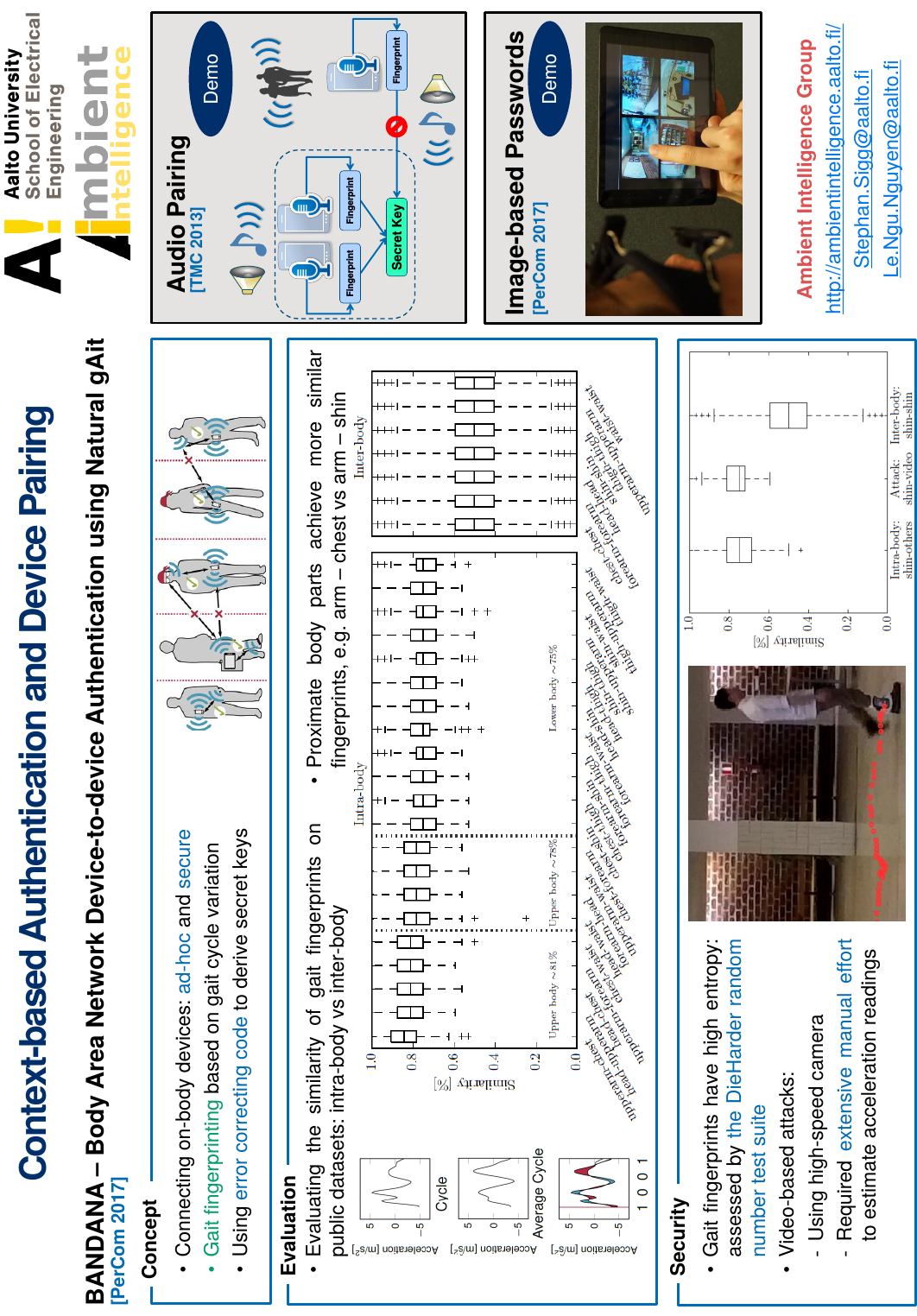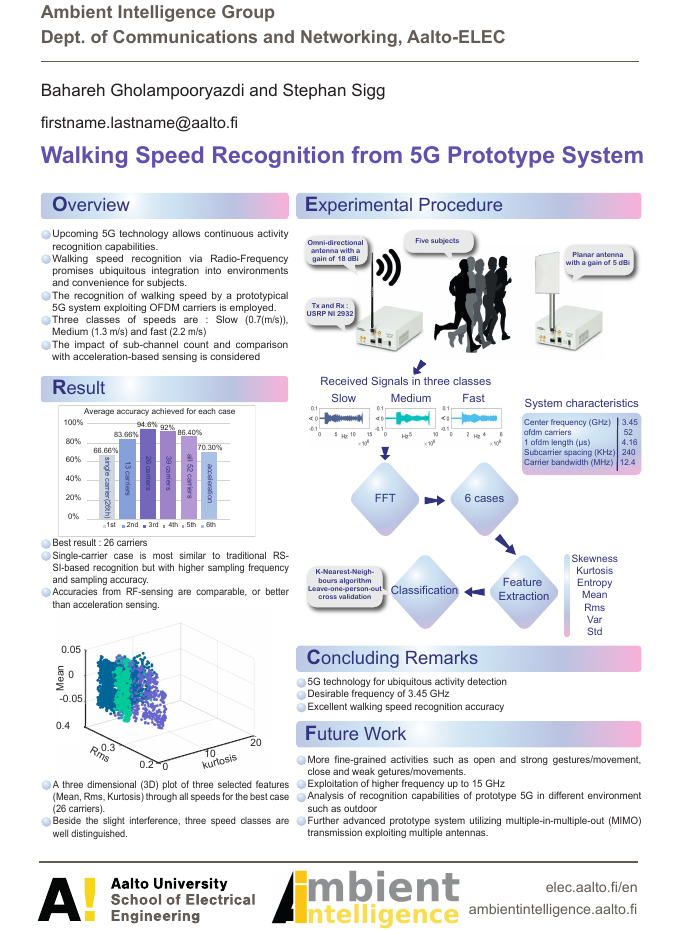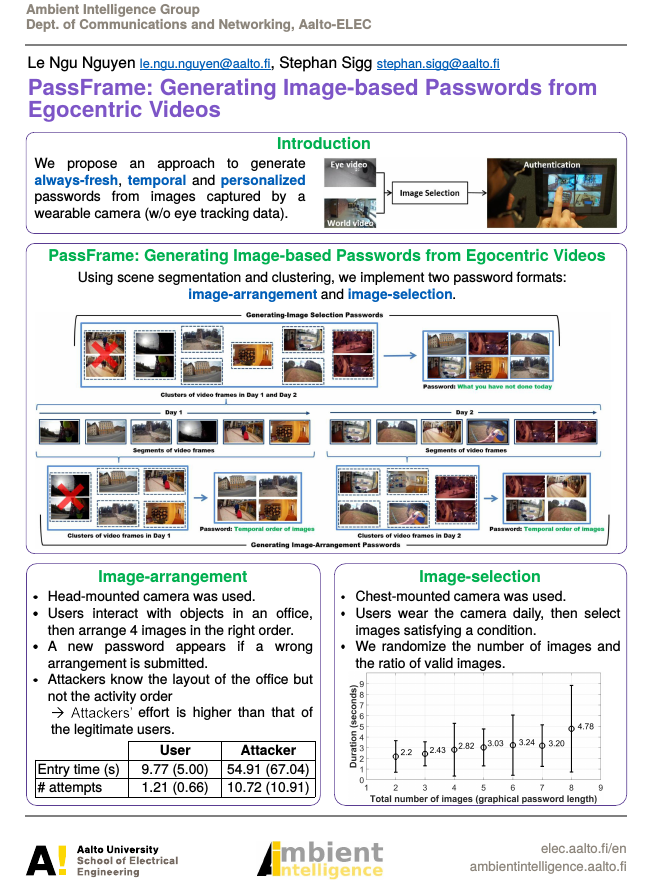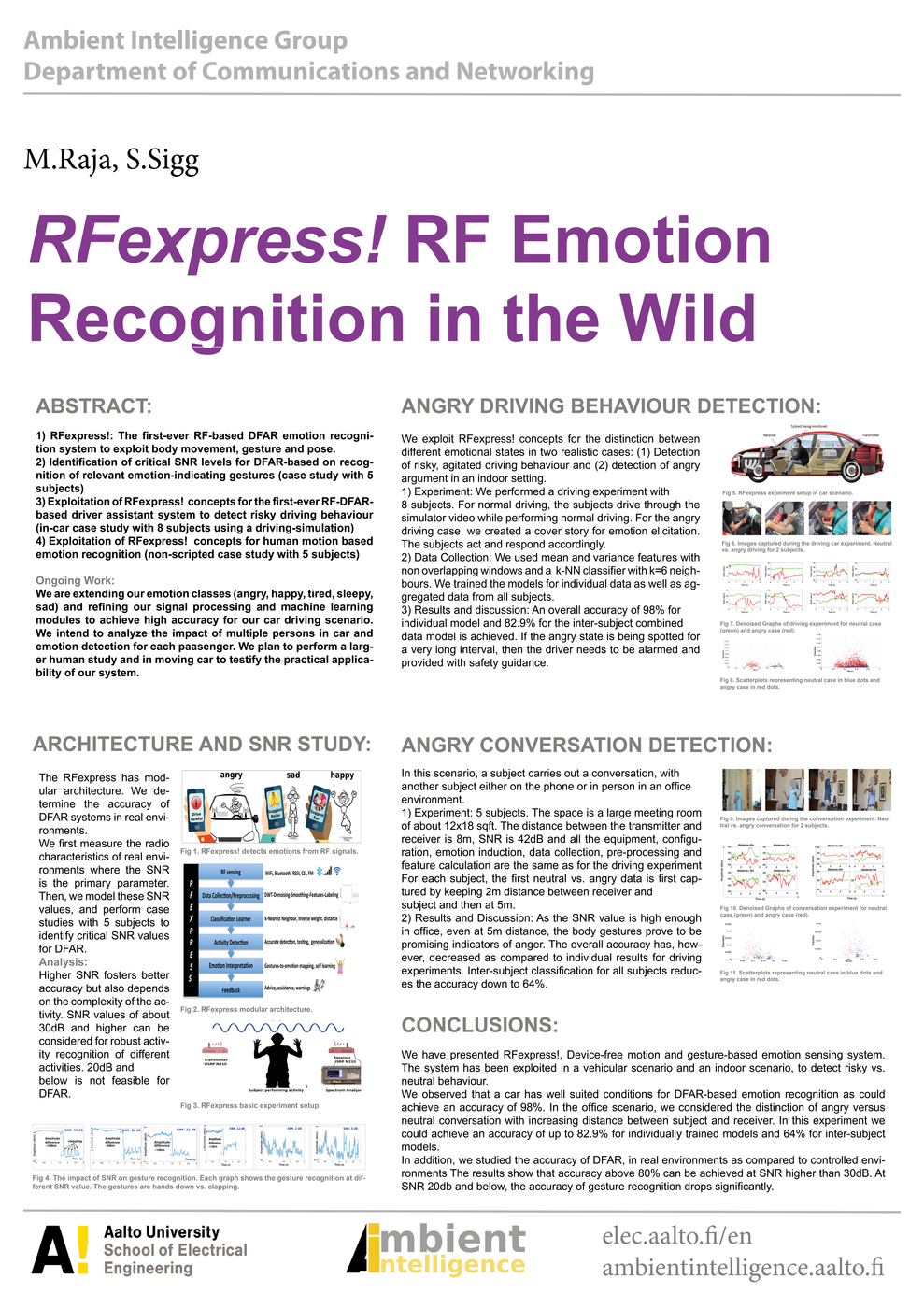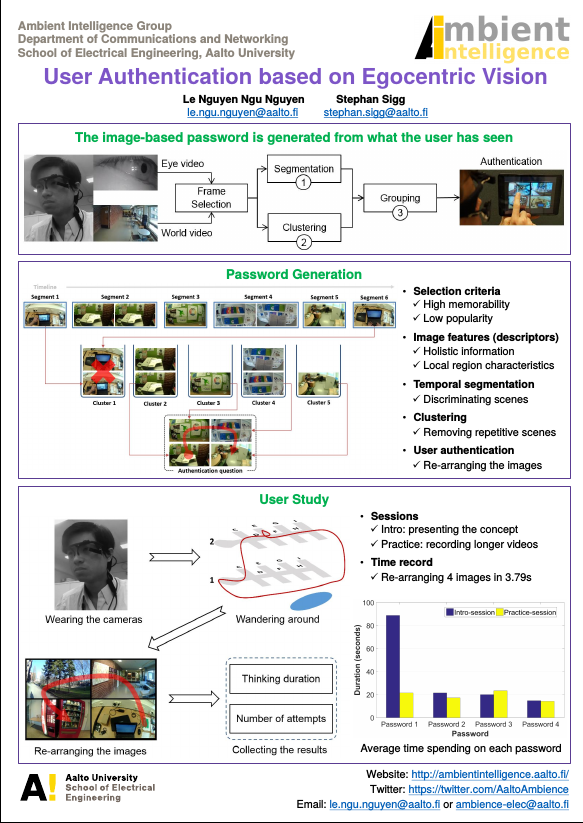
Si Zuo
- Aalto University
- Maarintie 8
- 00076 Espoo
- Finland
- si.zuo@aalto.fi
Si joined the Ambient Intelligence group in 2019. Her research intrests cover machine learning, deep learning, image recognition, wearable and internet of things, as well as healthcare applications.

Excellent! Next you can
create a new website with this list, or
embed it in an existing web page by copying & pasting
any of the following snippets.
JavaScript
(easiest)
PHP
iFrame
(not recommended)
<script src="https://bibbase.org/show?bib=https://ambientintelligence.aalto.fi/bibtex/LiteraturAll&folding=0&filter=author_short:Zuo&jsonp=1"></script>
<?php
$contents = file_get_contents("https://bibbase.org/show?bib=https://ambientintelligence.aalto.fi/bibtex/LiteraturAll&folding=0&filter=author_short:Zuo");
print_r($contents);
?>
<iframe src="https://bibbase.org/show?bib=https://ambientintelligence.aalto.fi/bibtex/LiteraturAll&folding=0&filter=author_short:Zuo"></iframe>
For more details see the documention.
This is a preview! To use this list on your own web site
or create a new web site from it,
create a free account. The file will be added
and you will be able to edit it in the File Manager.
We will show you instructions once you've created your account.
To the site owner:
Action required! Mendeley is changing its API. In order to keep using Mendeley with BibBase past April 14th, you need to:
- renew the authorization for BibBase on Mendeley, and
- update the BibBase URL in your page the same way you did when you initially set up this page.
2025
(1)
Transient Authentication from First-Person-View Video.
Nguyen, L. N.; Findling, R. D.; Poikela, M.; Zuo, S.; and Sigg, S.
Proc. ACM Interact. Mob. Wearable Ubiquitous Technol., 9(1). March 2025.
![Paper Transient Authentication from First-Person-View Video [link]](//bibbase.org/img/filetypes/link.svg) Paper
doi
link
bibtex
abstract
Paper
doi
link
bibtex
abstract
![Paper Transient Authentication from First-Person-View Video [link]](http://bibbase.org/img/filetypes/link.svg) Paper
doi
link
bibtex
abstract
Paper
doi
link
bibtex
abstract
@article{10.1145/3712266,
author = {Nguyen, Le Ngu and Findling, Rainhard Dieter and Poikela, Maija and Zuo, Si and Sigg, Stephan},
title = {Transient Authentication from First-Person-View Video},
year = {2025},
issue_date = {March 2025},
publisher = {Association for Computing Machinery},
address = {New York, NY, USA},
volume = {9},
number = {1},
url = {https://doi.org/10.1145/3712266},
doi = {10.1145/3712266},
abstract = {We propose PassFrame, a system which utilizes first-person-view videos to generate personalized authentication challenges based on human episodic memory of event sequences. From the recorded videos, relevant (memorable) scenes are selected to form image-based authentication challenges. These authentication challenges are compatible with a variety of screen sizes and input modalities. As the popularity of using wearable cameras in daily life is increasing, PassFrame may serve as a convenient personalized authentication mechanism to screen-based appliances and services of a camera wearer. We evaluated the system in various settings including a spatially constrained scenario with 12 participants and a deployment on smartphones with 16 participants and more than 9 hours continuous video per participant. The authentication challenge completion time ranged from 2.1 to 9.7 seconds (average: 6 sec), which could facilitate a secure yet usable configuration of three consecutive challenges for each login. We investigated different versions of the challenges to obfuscate potential privacy leakage or ethical concerns with 27 participants. We also assessed the authentication schemes in the presence of informed adversaries, such as friends, colleagues or spouses and were able to detect attacks from diverging login behaviour.},
journal = {Proc. ACM Interact. Mob. Wearable Ubiquitous Technol.},
month = mar,
articleno = {14},
numpages = {31},
keywords = {Always-fresh challenge, First-person-view video, Shoulder-surfing resistance, Transient authentication challenge, Usable security, User authentication},
group = {ambience}}
%%% 2024 %%%
We propose PassFrame, a system which utilizes first-person-view videos to generate personalized authentication challenges based on human episodic memory of event sequences. From the recorded videos, relevant (memorable) scenes are selected to form image-based authentication challenges. These authentication challenges are compatible with a variety of screen sizes and input modalities. As the popularity of using wearable cameras in daily life is increasing, PassFrame may serve as a convenient personalized authentication mechanism to screen-based appliances and services of a camera wearer. We evaluated the system in various settings including a spatially constrained scenario with 12 participants and a deployment on smartphones with 16 participants and more than 9 hours continuous video per participant. The authentication challenge completion time ranged from 2.1 to 9.7 seconds (average: 6 sec), which could facilitate a secure yet usable configuration of three consecutive challenges for each login. We investigated different versions of the challenges to obfuscate potential privacy leakage or ethical concerns with 27 participants. We also assessed the authentication schemes in the presence of informed adversaries, such as friends, colleagues or spouses and were able to detect attacks from diverging login behaviour.
2024
(1)
Balancing privacy and utility of smart devices utilizing explicit and implicit context.
Zuo, S.
. 2024.
link bibtex
link bibtex
@article{zuo2024balancing,
title={Balancing privacy and utility of smart devices utilizing explicit and implicit context},
author={Zuo, Si},
year={2024},
publisher={Aalto University}
}
2023
(2)
Unsupervised statistical feature-guided diffusion model for sensor-based human activity recognition.
Zuo, S.; Rey, V. F.; Suh, S.; Sigg, S.; and Lukowicz, P.
arXiv preprint arXiv:2306.05285. 2023.
link bibtex
link bibtex
@article{zuo2023unsupervised,
title={Unsupervised statistical feature-guided diffusion model for sensor-based human activity recognition},
author={Zuo, Si and Rey, Vitor Fortes and Suh, Sungho and Sigg, Stephan and Lukowicz, Paul},
journal={arXiv preprint arXiv:2306.05285},
year={2023},
group = {ambience}}
Unsupervised Diffusion Model for Sensor-based Human Activity Recognition.
Zuo, S.; Fortes, V.; Suh, S.; Sigg, S.; and Lukowicz, P.
In Adjunct Proceedings of the 2023 ACM International Joint Conference on Pervasive and Ubiquitous Computing & the 2023 ACM International Symposium on Wearable Computing, of UbiComp/ISWC '23 Adjunct, pages 205, New York, NY, USA, 2023. Association for Computing Machinery
![Paper Unsupervised Diffusion Model for Sensor-based Human Activity Recognition [link]](//bibbase.org/img/filetypes/link.svg) Paper
doi
link
bibtex
abstract
Paper
doi
link
bibtex
abstract
![Paper Unsupervised Diffusion Model for Sensor-based Human Activity Recognition [link]](http://bibbase.org/img/filetypes/link.svg) Paper
doi
link
bibtex
abstract
Paper
doi
link
bibtex
abstract
@inproceedings{10.1145/3594739.3610797,
author = {Zuo, Si and Fortes, Vitor and Suh, Sungho and Sigg, Stephan and Lukowicz, Paul},
title = {Unsupervised Diffusion Model for Sensor-based Human Activity Recognition},
year = {2023},
isbn = {9798400702006},
publisher = {Association for Computing Machinery},
address = {New York, NY, USA},
url = {https://doi.org/10.1145/3594739.3610797},
doi = {10.1145/3594739.3610797},
abstract = {Recognizing human activities from sensor data is a vital task in various domains, but obtaining diverse and labeled sensor data remains challenging and costly. In this paper, we propose an unsupervised statistical feature-guided diffusion model for sensor-based human activity recognition. The proposed method aims to generate synthetic time-series sensor data without relying on labeled data, addressing the scarcity and annotation difficulties associated with real-world sensor data. By conditioning the diffusion model on statistical information such as mean, standard deviation, Z-score, and skewness, we generate diverse and representative synthetic sensor data. We conducted experiments on public human activity recognition datasets and compared the proposed method to conventional oversampling methods and state-of-the-art generative adversarial network methods. The experimental results demonstrate that the proposed method can improve the performance of human activity recognition and outperform existing techniques.},
booktitle = {Adjunct Proceedings of the 2023 ACM International Joint Conference on Pervasive and Ubiquitous Computing \& the 2023 ACM International Symposium on Wearable Computing},
pages = {205},
numpages = {1},
keywords = {Human activity recognition, Sensor data generation, Statistical feature-guided diffusion model, Unsupervised learning},
location = {Cancun, Quintana Roo, Mexico},
series = {UbiComp/ISWC '23 Adjunct},
group = {ambience}}
Recognizing human activities from sensor data is a vital task in various domains, but obtaining diverse and labeled sensor data remains challenging and costly. In this paper, we propose an unsupervised statistical feature-guided diffusion model for sensor-based human activity recognition. The proposed method aims to generate synthetic time-series sensor data without relying on labeled data, addressing the scarcity and annotation difficulties associated with real-world sensor data. By conditioning the diffusion model on statistical information such as mean, standard deviation, Z-score, and skewness, we generate diverse and representative synthetic sensor data. We conducted experiments on public human activity recognition datasets and compared the proposed method to conventional oversampling methods and state-of-the-art generative adversarial network methods. The experimental results demonstrate that the proposed method can improve the performance of human activity recognition and outperform existing techniques.
2022
(3)
CardioID: Secure ECG-BCG agnostic interaction-free device pairing.
Zuo, S.; Sigg, S.; Beck, N.; Jähne-Raden, N.; Wolf, M. C.; and others
IEEE Access, 10: 128682–128696. 2022.
link bibtex
link bibtex
@article{zuo2022cardioid,
title={CardioID: Secure ECG-BCG agnostic interaction-free device pairing},
author={Zuo, Si and Sigg, Stephan and Beck, Nils and J{\"a}hne-Raden, Nico and Wolf, Marie Cathrine and others},
journal={IEEE Access},
volume={10},
pages={128682--128696},
year={2022},
publisher={IEEE},
group = {ambience}}
Personalized Gestures Through Motion Transfer: Protecting Privacy in Pervasive Surveillance.
Zuo, S.; and Sigg, S.
IEEE Pervasive Computing, 21(4): 8–16. 2022.
link bibtex
link bibtex
@article{zuo2022personalized,
title={Personalized Gestures Through Motion Transfer: Protecting Privacy in Pervasive Surveillance},
author={Zuo, Si and Sigg, Stephan},
journal={IEEE Pervasive Computing},
volume={21},
number={4},
pages={8--16},
year={2022},
publisher={IEEE},
group = {ambience}}
2021
(1)
BCG and ECG-based secure communication for medical devices in Body Area Networks.
Beck, N.; Zuo, S.; and Sigg, S.
In The 19th International Conference on Pervasive Computing and Communications (PerCom 2021), adjunct, 2021.
link bibtex abstract
link bibtex abstract
@inproceedings{Beck2020BCGECG,
title={BCG and ECG-based secure communication for medical devices in Body Area Networks},
author={Nils Beck and Si Zuo and Stephan Sigg},
booktitle={The 19th International Conference on Pervasive Computing and Communications (PerCom 2021), adjunct},
year={2021},
abstract={An increasing amount of medical devices, such as pace makers or insulin pumps, is able to communicate in wireless Body Area Networks (BANs). While this facilitates interaction between users and medical devices, something that was previously more complicated or - in the case of implanted devices - often impossible, it also raises security and privacy questions. We exploit the wide availability of ballistocardiographs (BCG) and electocardiographs (ECG) in consumer wearables and propose MEDISCOM, an ad-hoc, implicit and secure communication protocol for medical devices in local BANs. Deriving common secret keys from a body’s BCG or ECG signal. MEDISCOM ensures confidentiality and integrity of sensitive medical data and also continuously authenticates devices, requiring no explicit user interaction and maintaining a low computational overhead. We consider relevant attack vectors and show how MEDISCOM is resilient towards them. Furthermore, we validate the security of the secret keys that our protocol derives on BCG and ECG data from 29 subjects.
},
group = {ambience},
project = {abacus}
}
An increasing amount of medical devices, such as pace makers or insulin pumps, is able to communicate in wireless Body Area Networks (BANs). While this facilitates interaction between users and medical devices, something that was previously more complicated or - in the case of implanted devices - often impossible, it also raises security and privacy questions. We exploit the wide availability of ballistocardiographs (BCG) and electocardiographs (ECG) in consumer wearables and propose MEDISCOM, an ad-hoc, implicit and secure communication protocol for medical devices in local BANs. Deriving common secret keys from a body’s BCG or ECG signal. MEDISCOM ensures confidentiality and integrity of sensitive medical data and also continuously authenticates devices, requiring no explicit user interaction and maintaining a low computational overhead. We consider relevant attack vectors and show how MEDISCOM is resilient towards them. Furthermore, we validate the security of the secret keys that our protocol derives on BCG and ECG data from 29 subjects.
2020
(1)
AutoSegNet: an automated neural network for image segmentation.
Xu, Z.; Zuo, S.; Lam, E. Y; Lee, B.; and Chen, N.
Ieee Access, 8: 92452–92461. 2020.
link bibtex
link bibtex
@article{xu2020autosegnet,
title={AutoSegNet: an automated neural network for image segmentation},
author={Xu, Zhimin and Zuo, Si and Lam, Edmund Y and Lee, Byoungho and Chen, Ni},
journal={Ieee Access},
volume={8},
pages={92452--92461},
year={2020},
publisher={IEEE}
}
2018
(2)
A Hierarchical Neural Network for Sequence-to-Sequences Learning.
Zuo, S.; and Xu, Z.
arXiv preprint arXiv:1811.09575. 2018.
link bibtex
link bibtex
@article{zuo2018hierarchical,
title={A Hierarchical Neural Network for Sequence-to-Sequences Learning},
author={Zuo, Si and Xu, Zhimin},
journal={arXiv preprint arXiv:1811.09575},
year={2018}
}
End-to-end learning for digital hologram reconstruction.
Xu, Z.; Zuo, S.; and Lam, E. Y
In High-Speed Biomedical Imaging and Spectroscopy III: Toward Big Data Instrumentation and Management, volume 10505, pages 68–73, 2018. SPIE
link bibtex
link bibtex
@inproceedings{xu2018end,
title={End-to-end learning for digital hologram reconstruction},
author={Xu, Zhimin and Zuo, Si and Lam, Edmund Y},
booktitle={High-Speed Biomedical Imaging and Spectroscopy III: Toward Big Data Instrumentation and Management},
volume={10505},
pages={68--73},
year={2018},
organization={SPIE}
}
%%% 2025


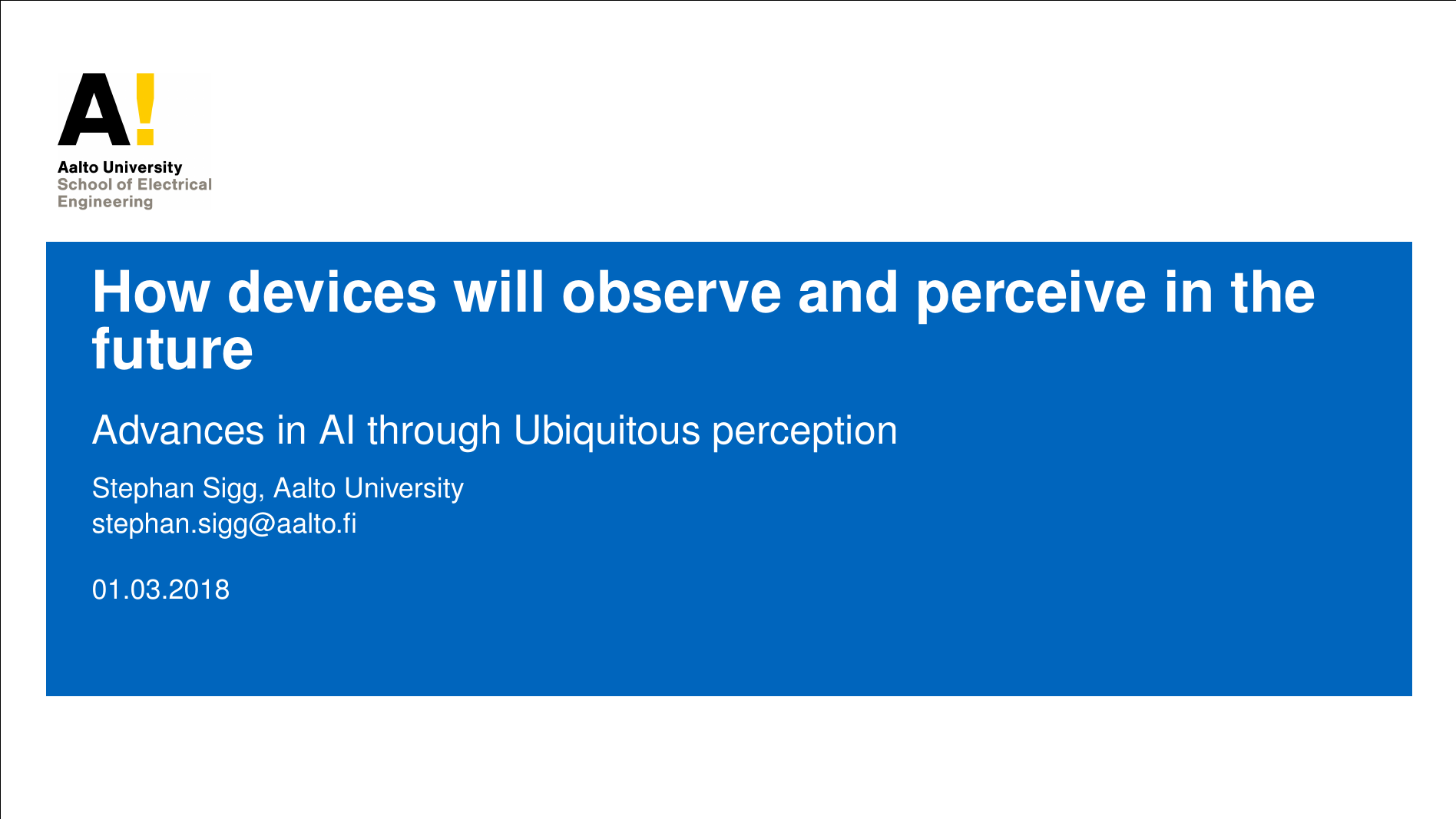
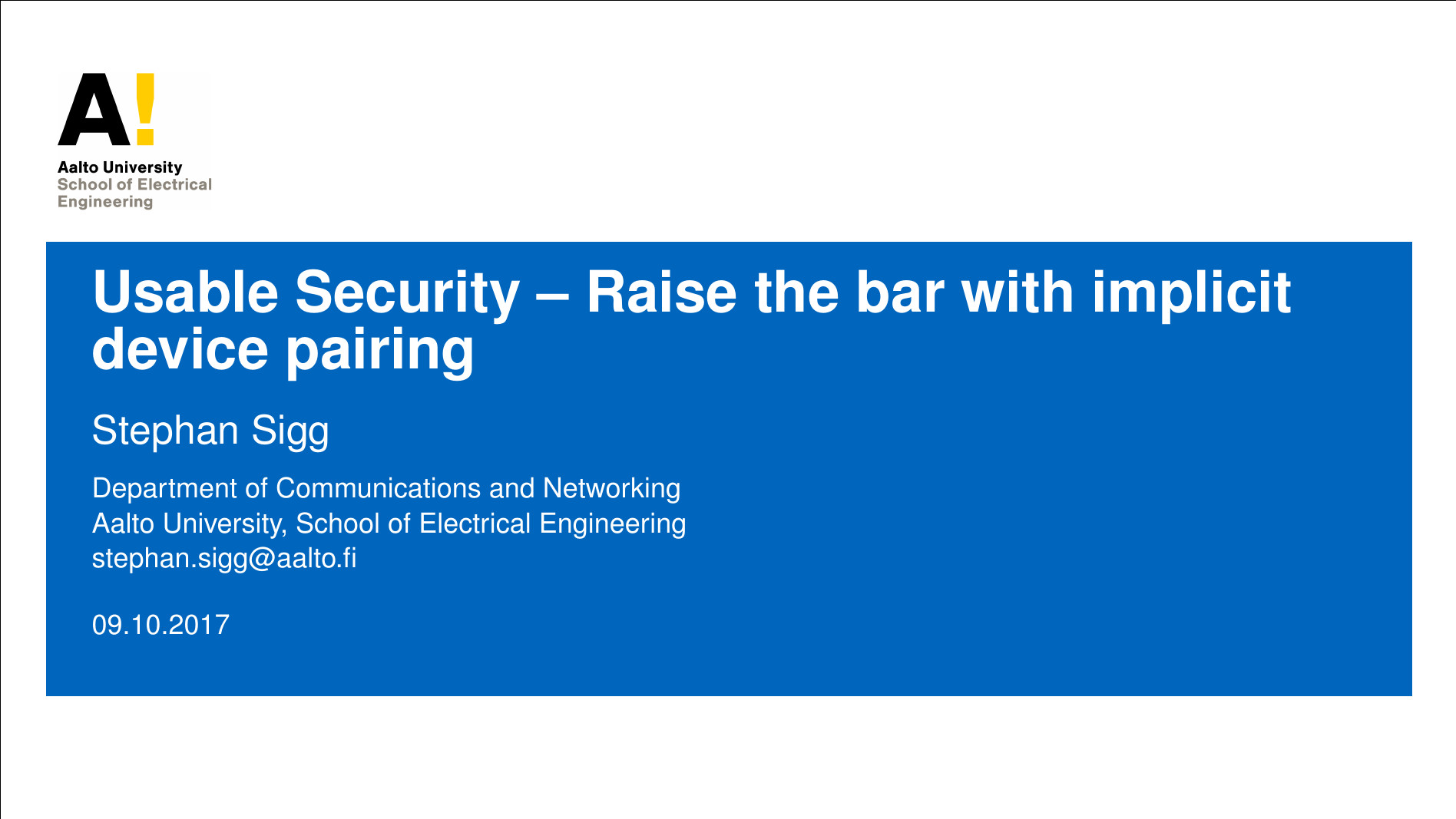
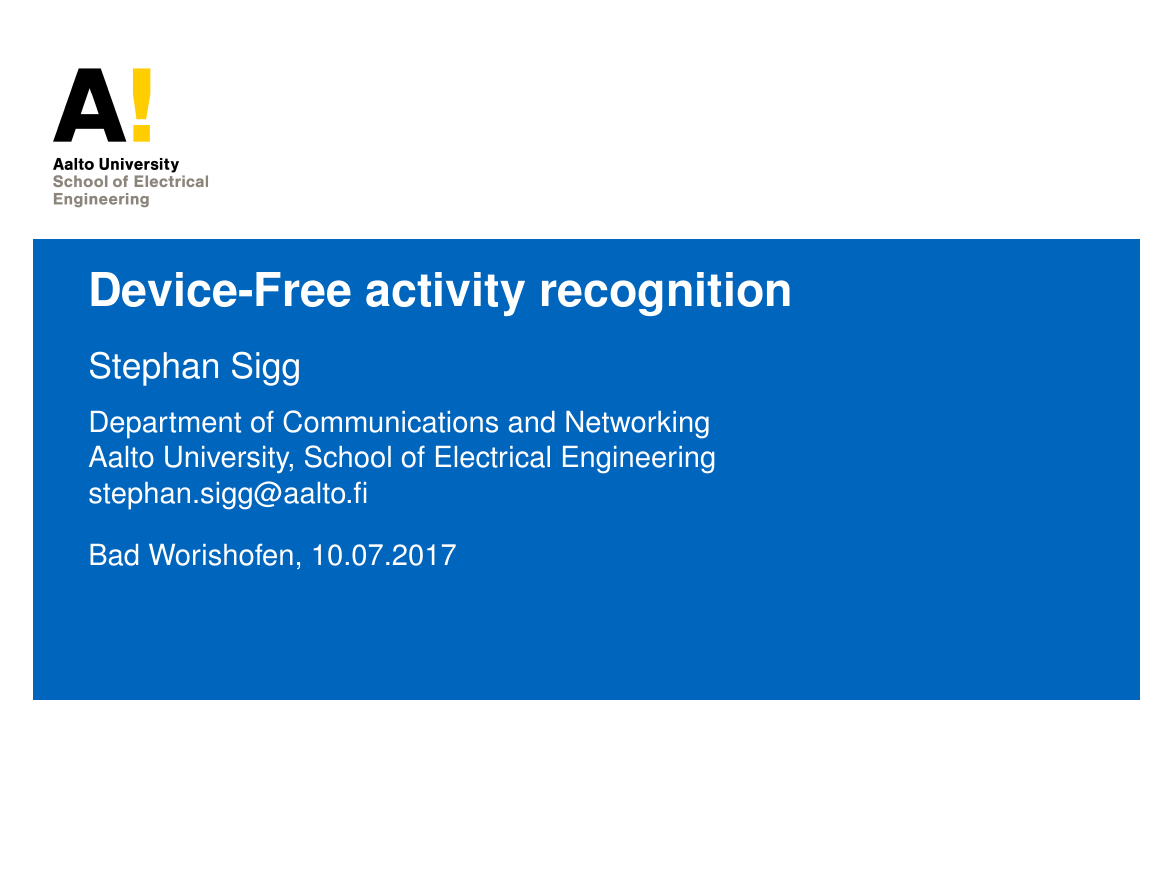
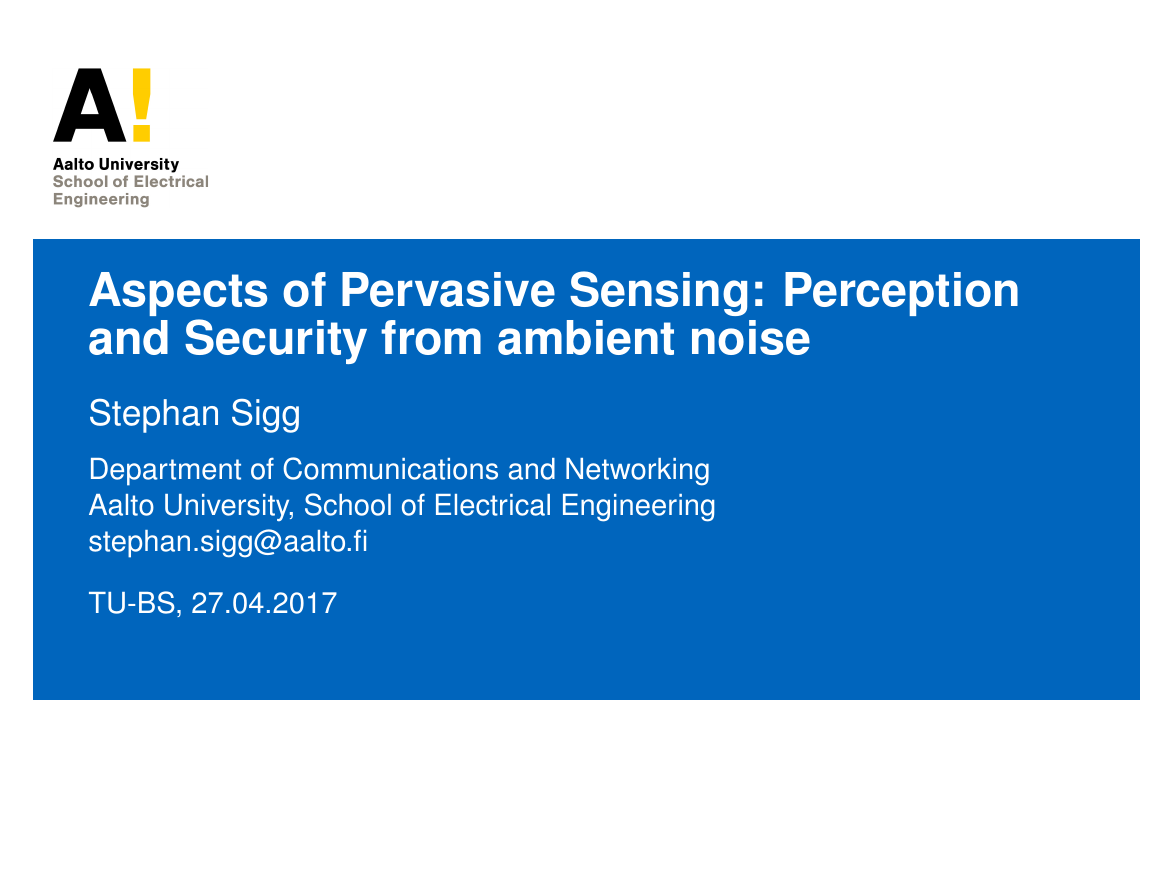

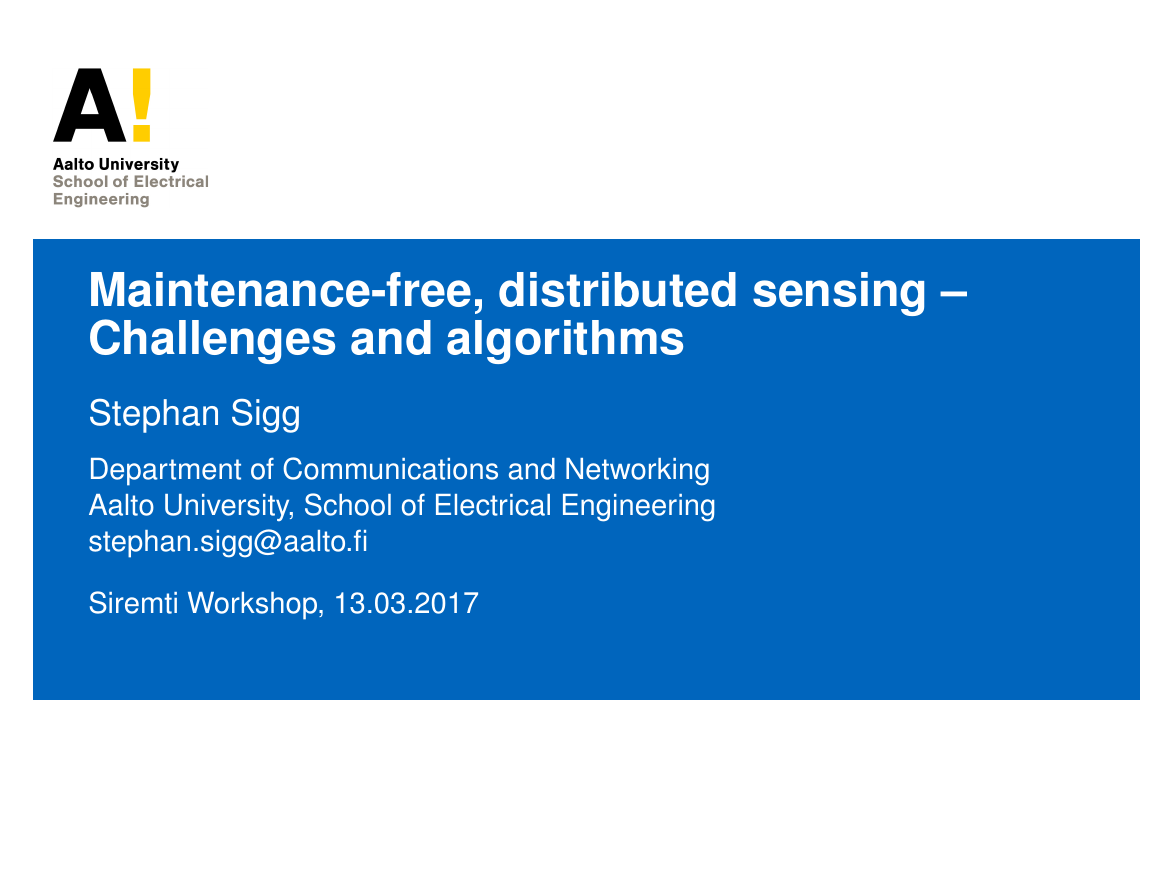
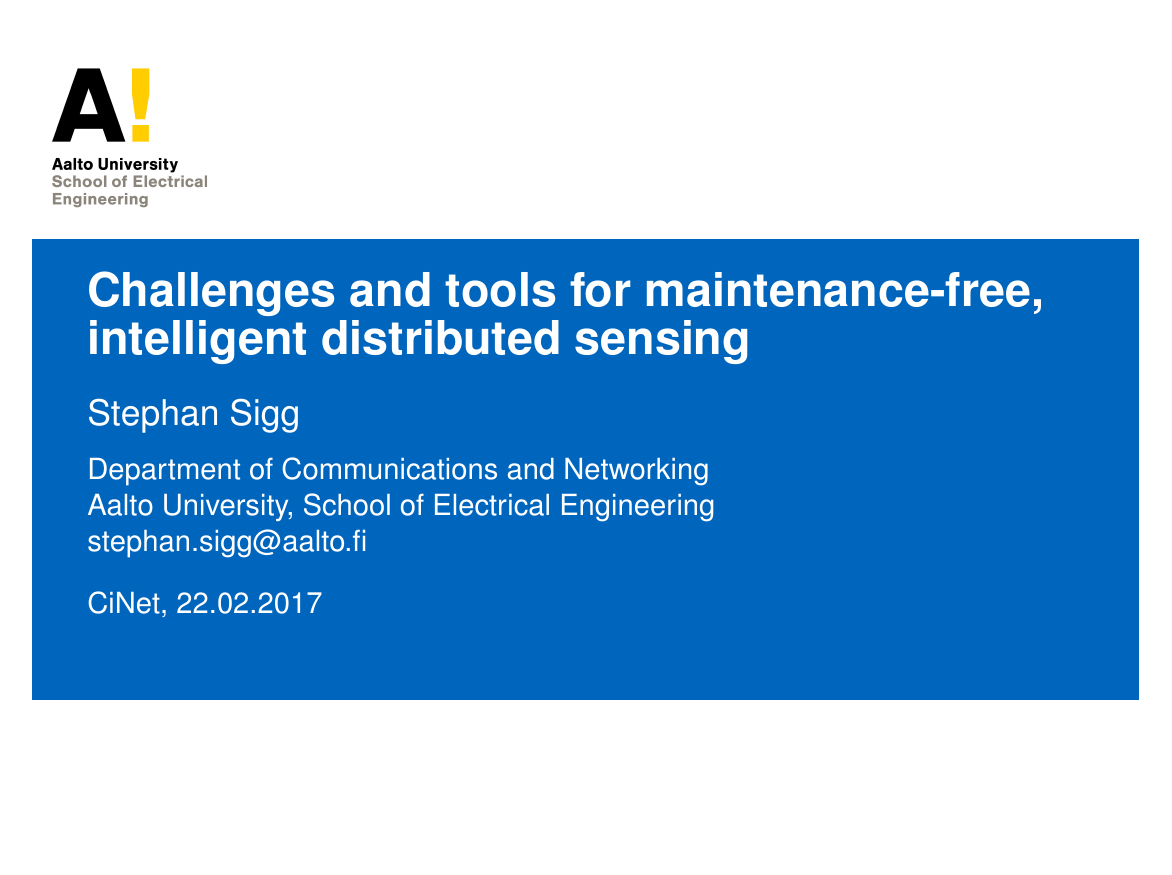
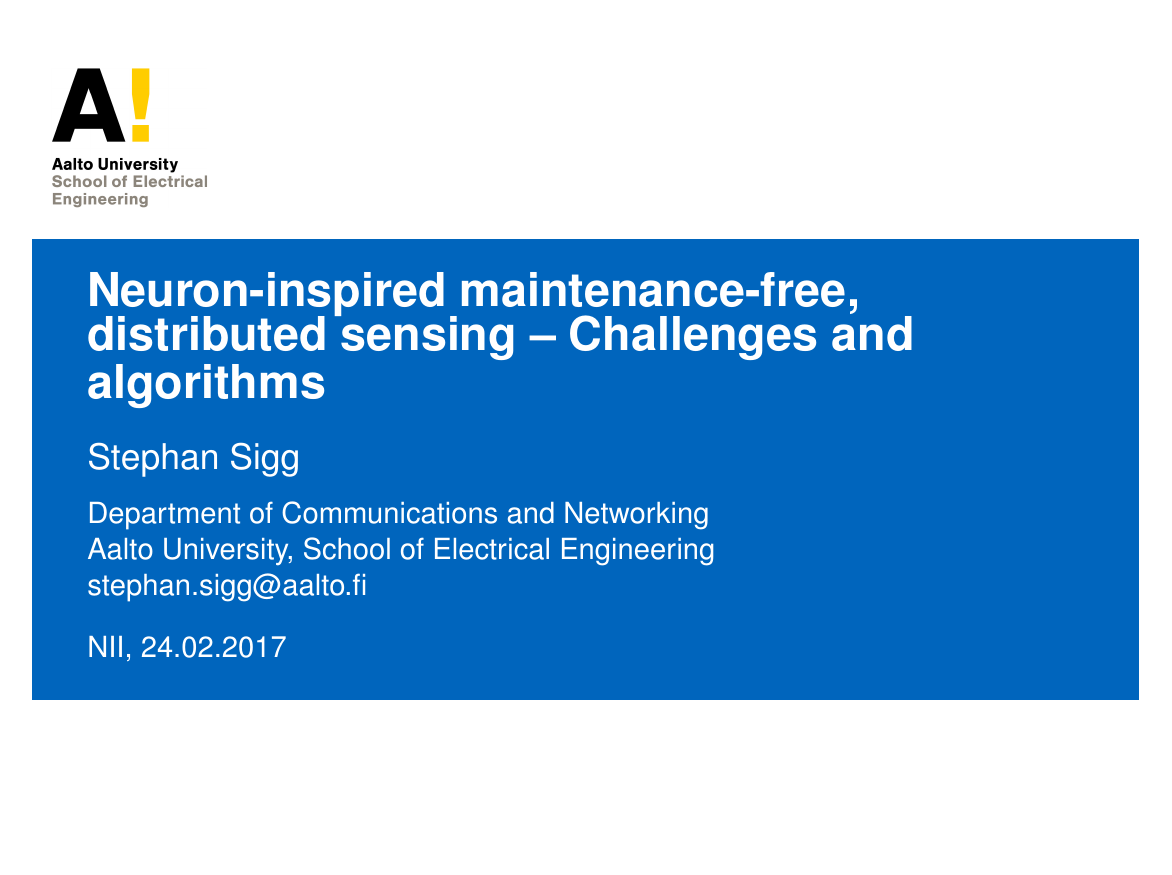
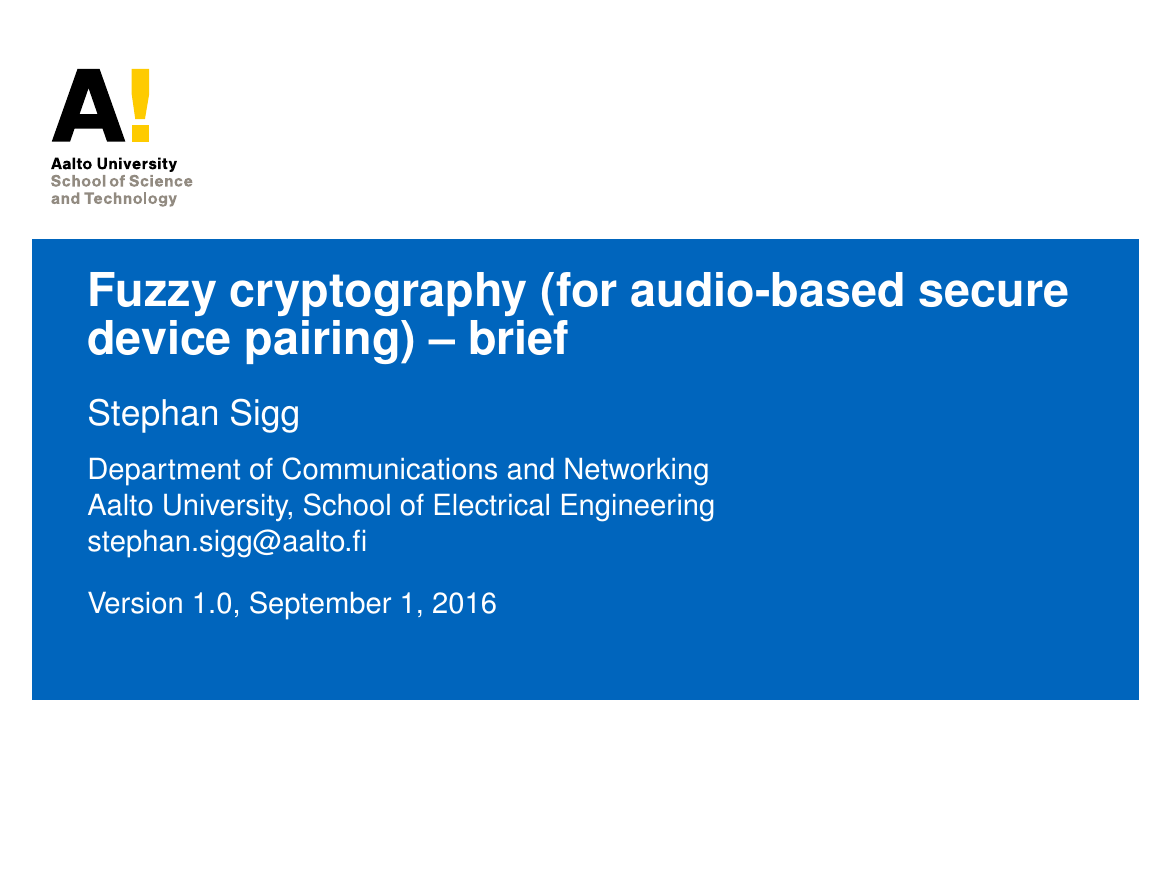
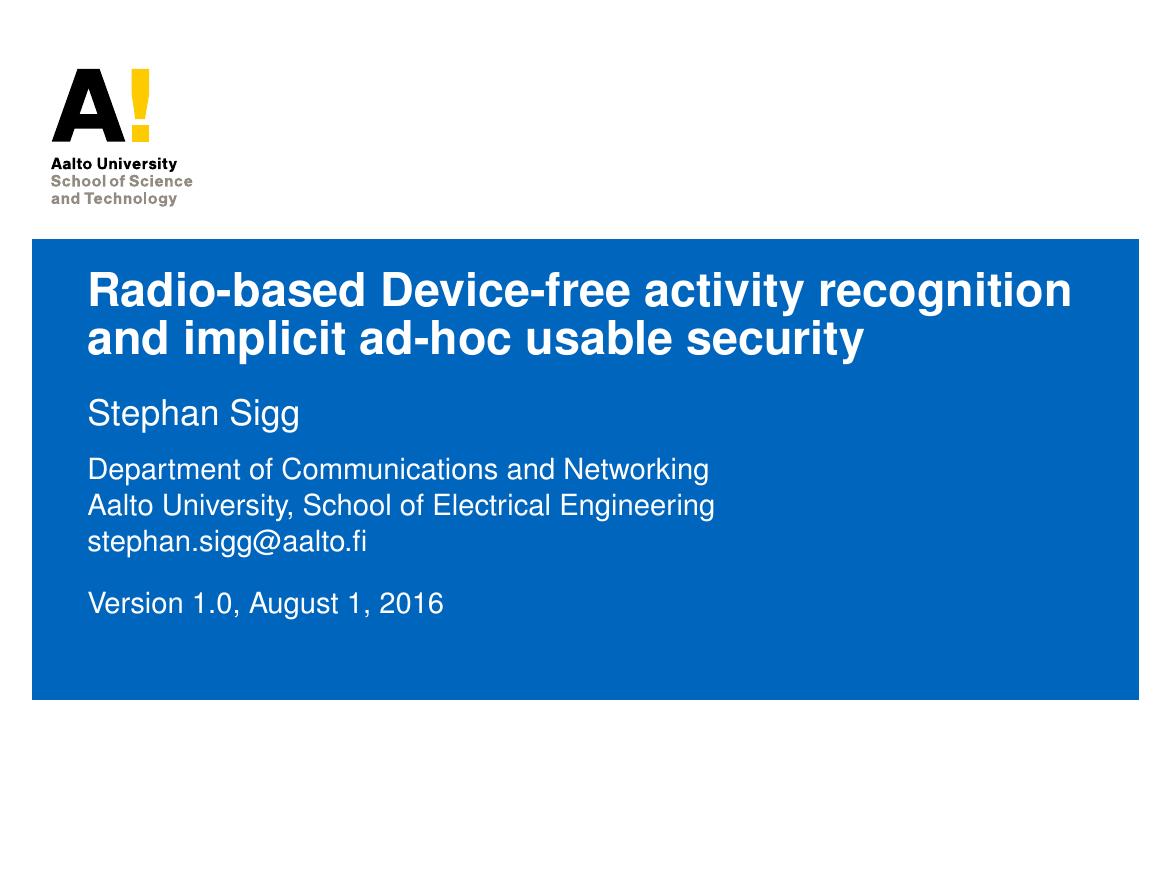
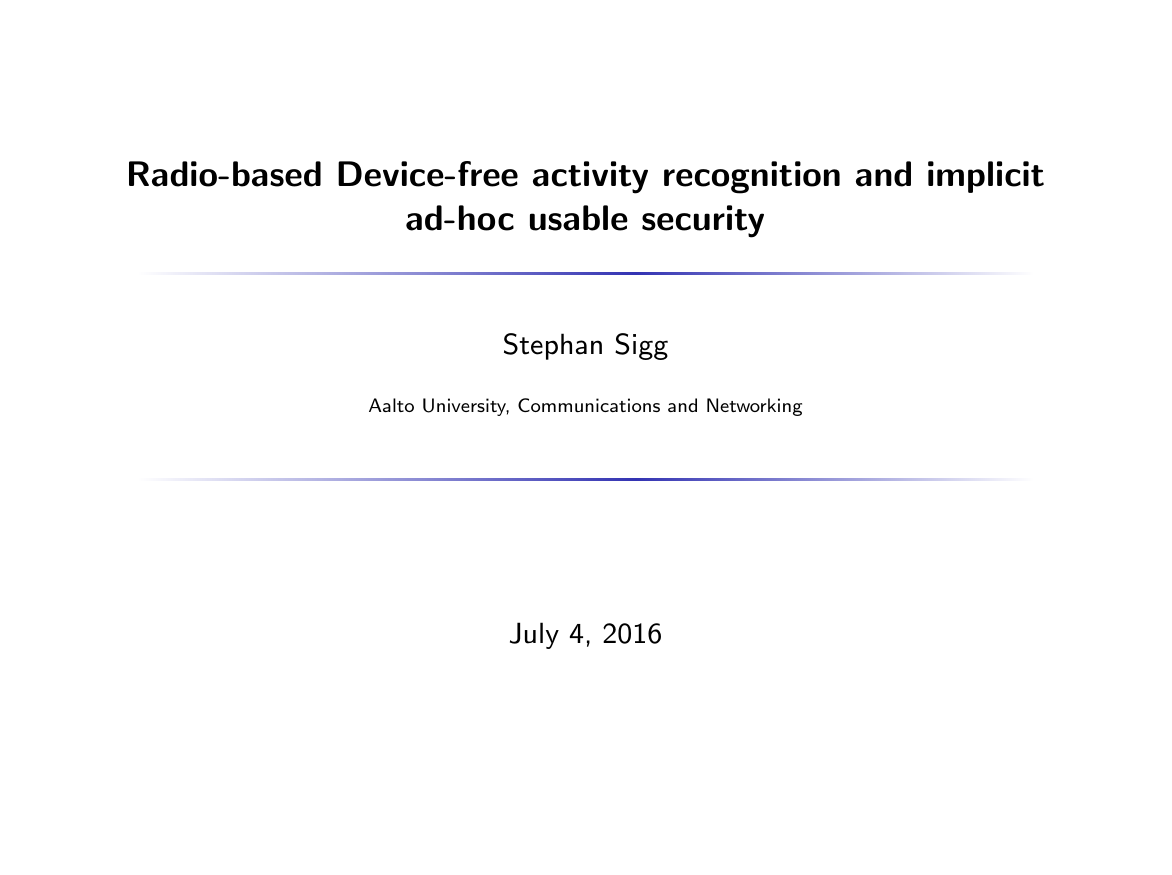
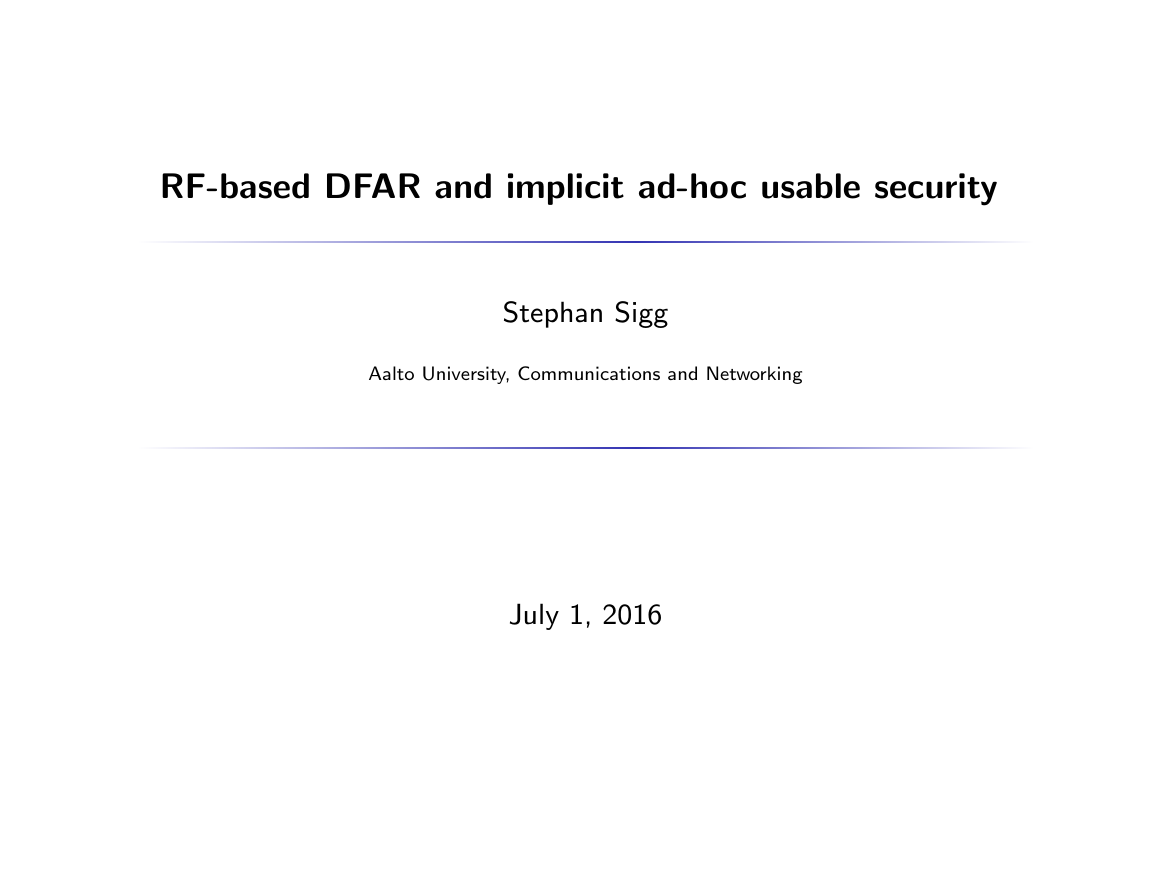
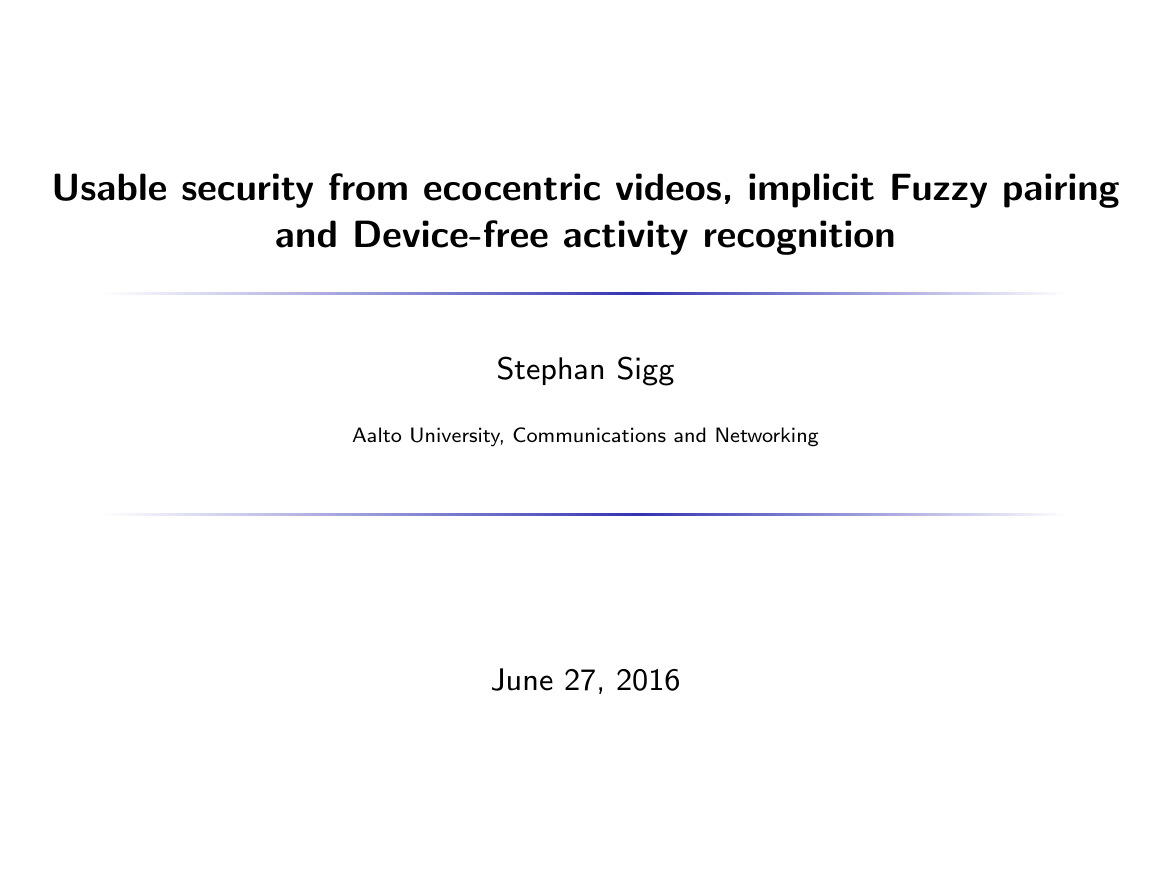
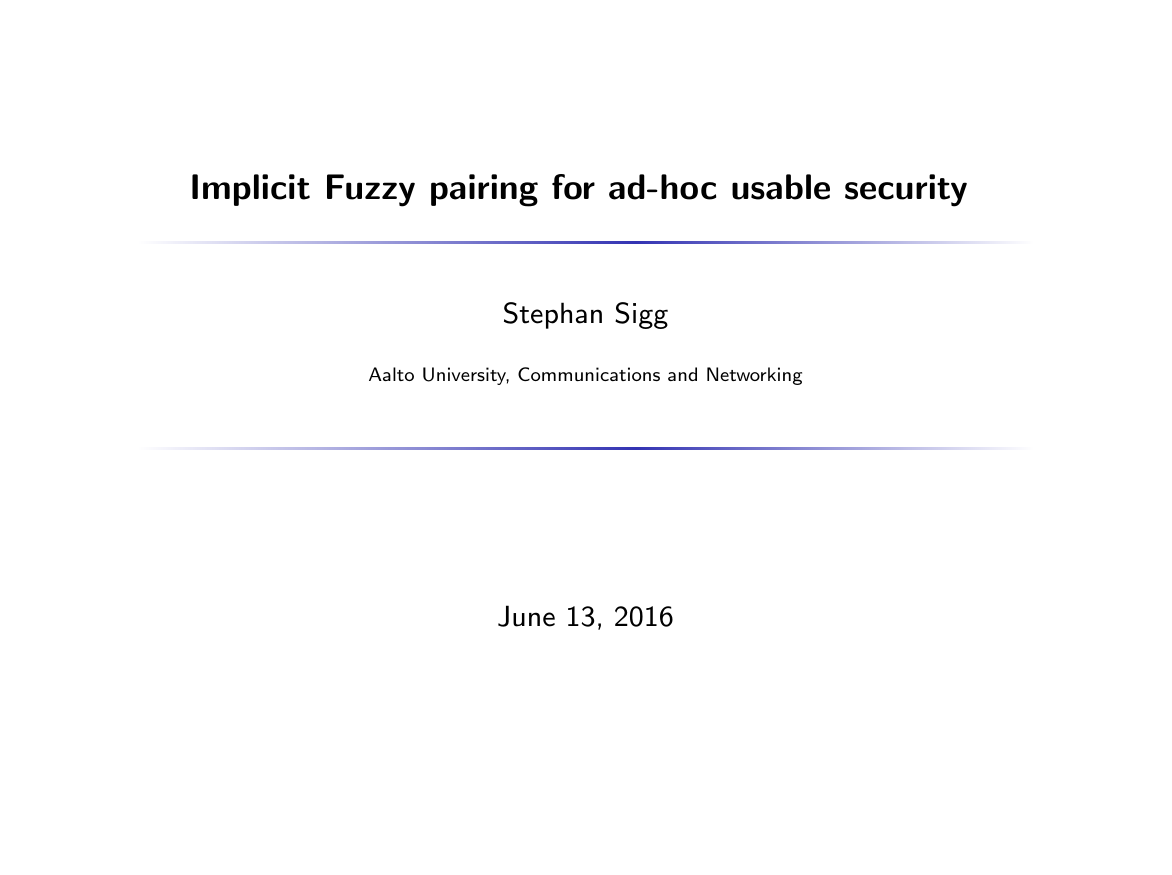
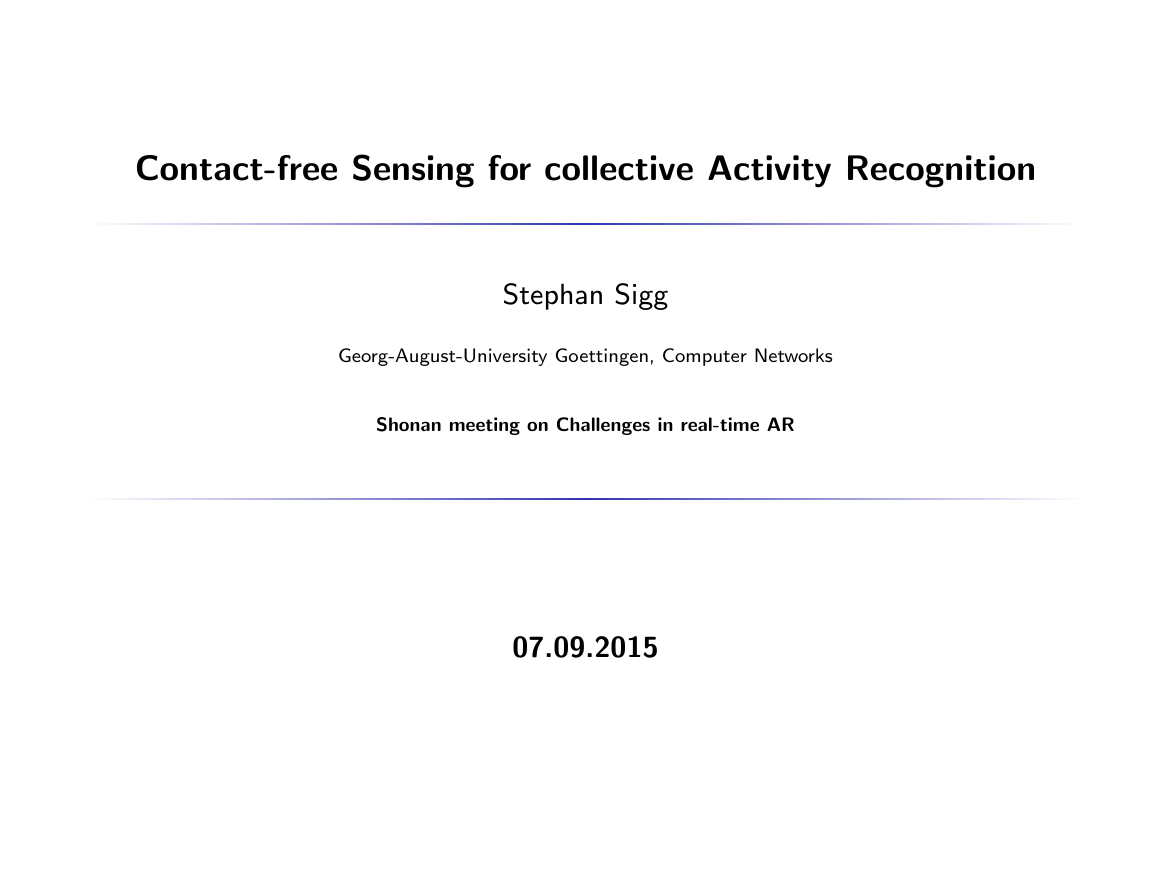
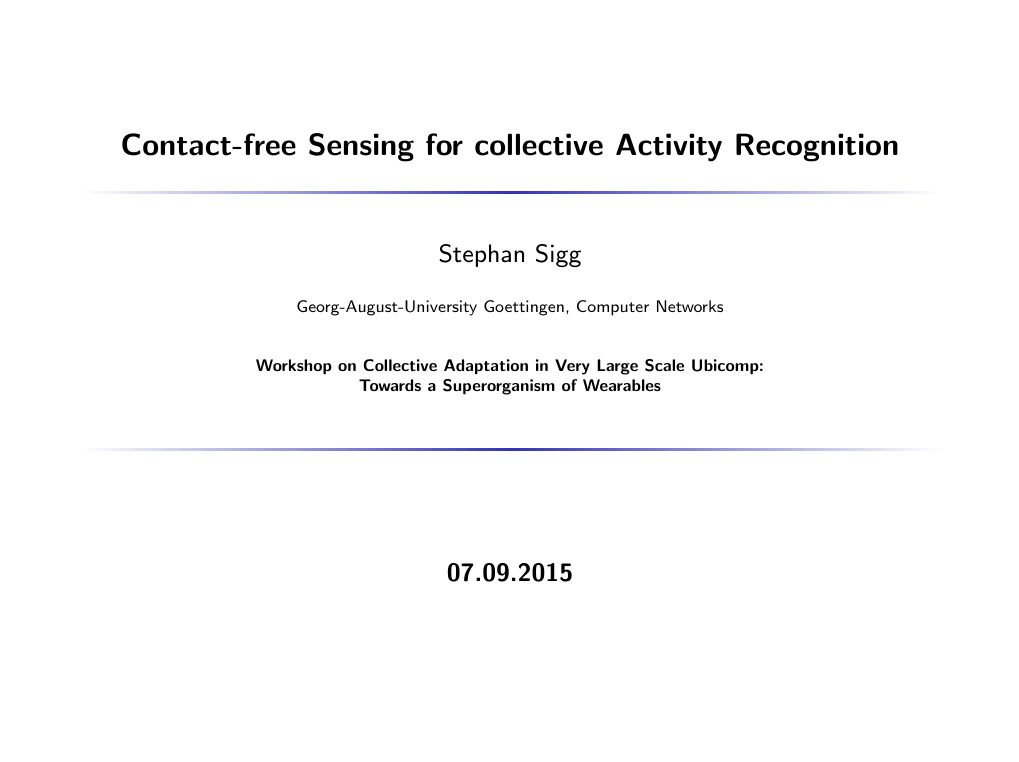
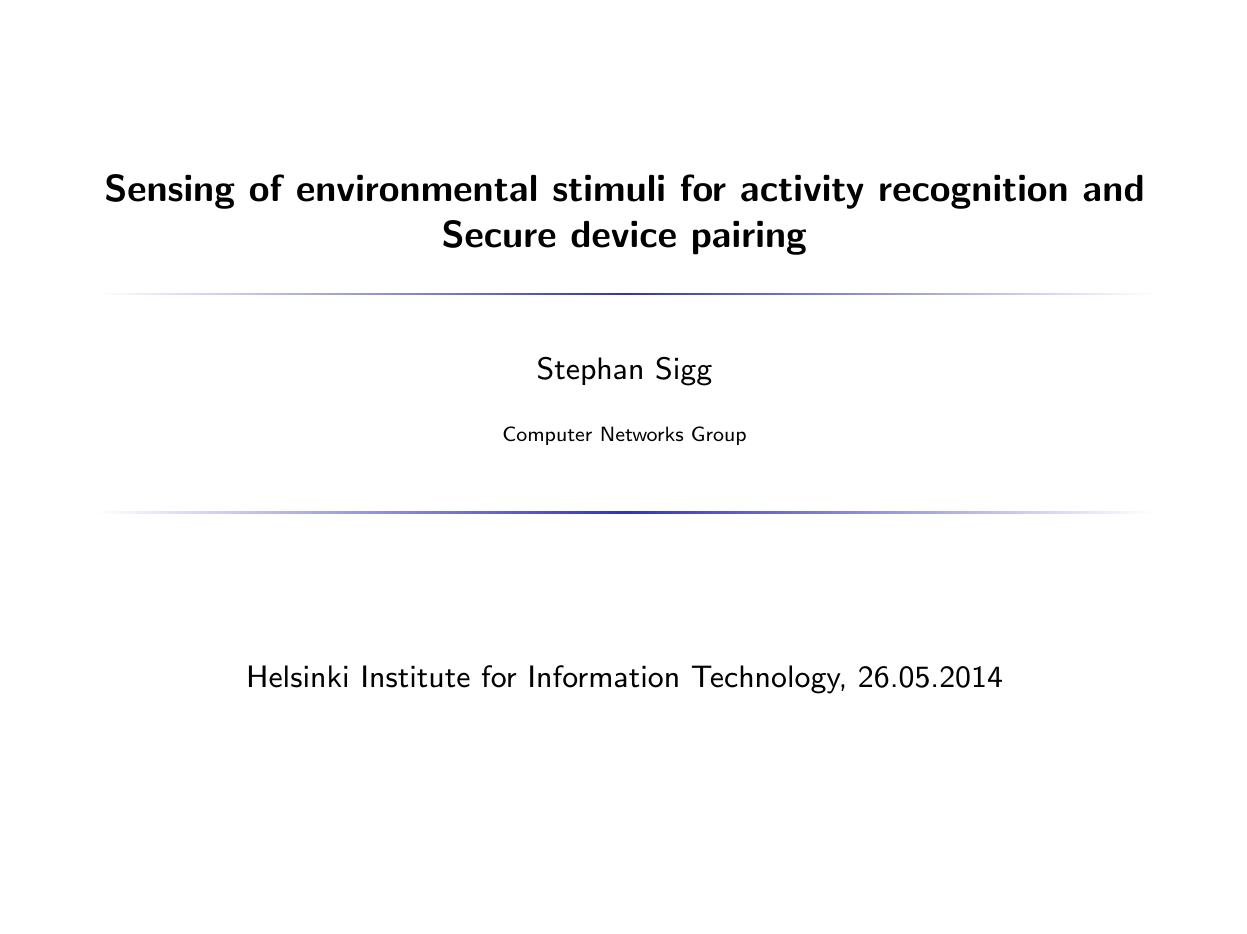
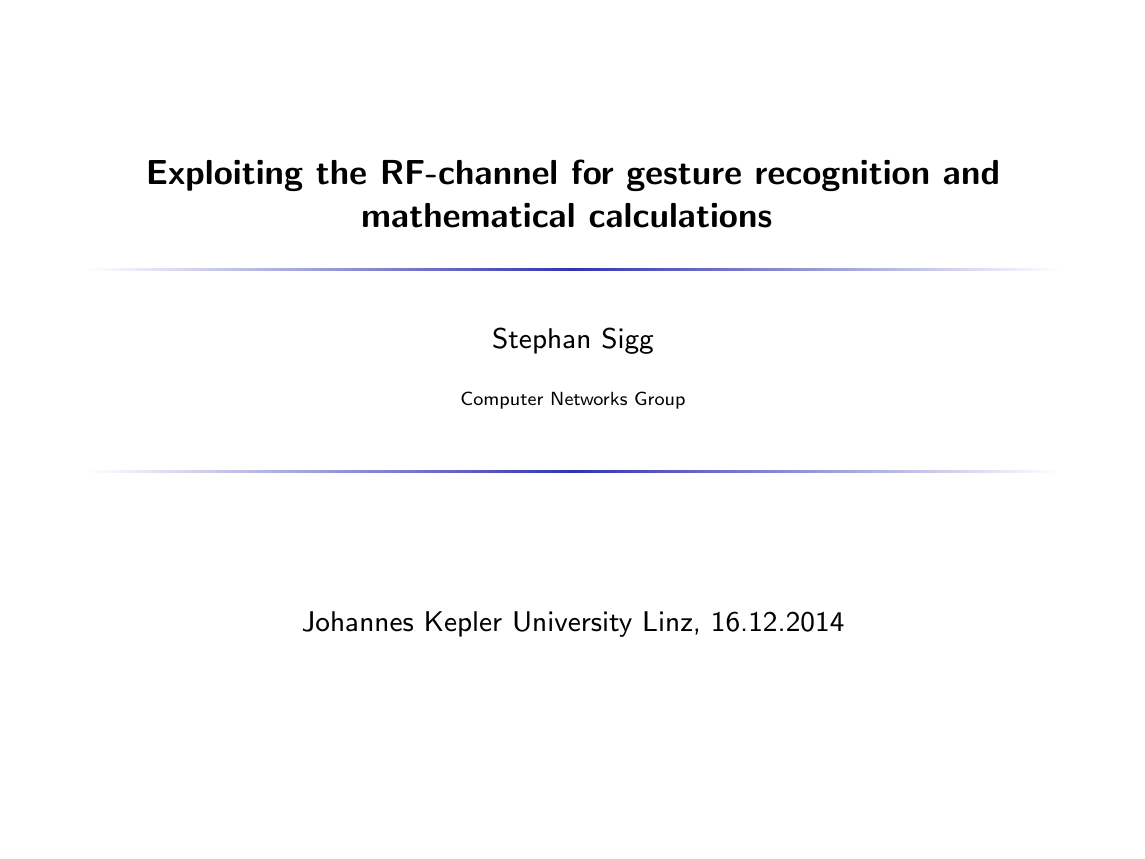
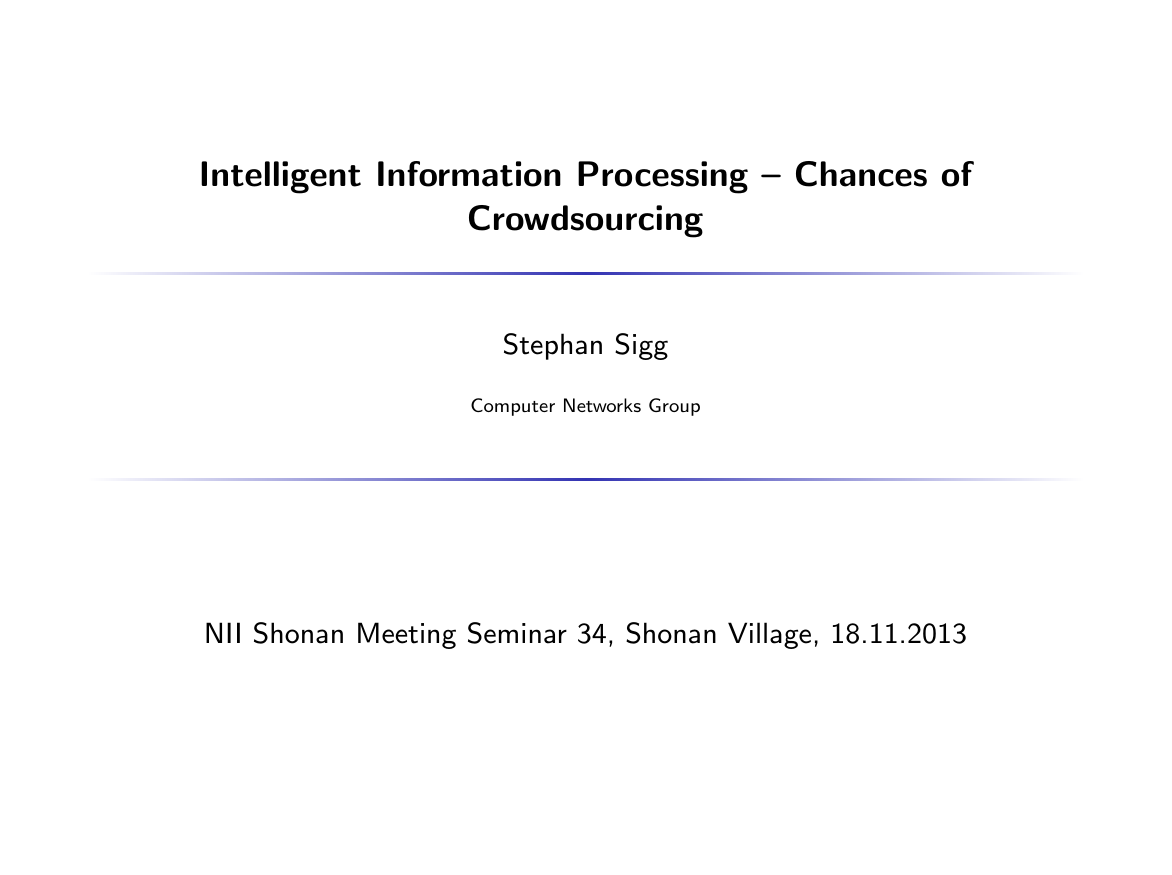
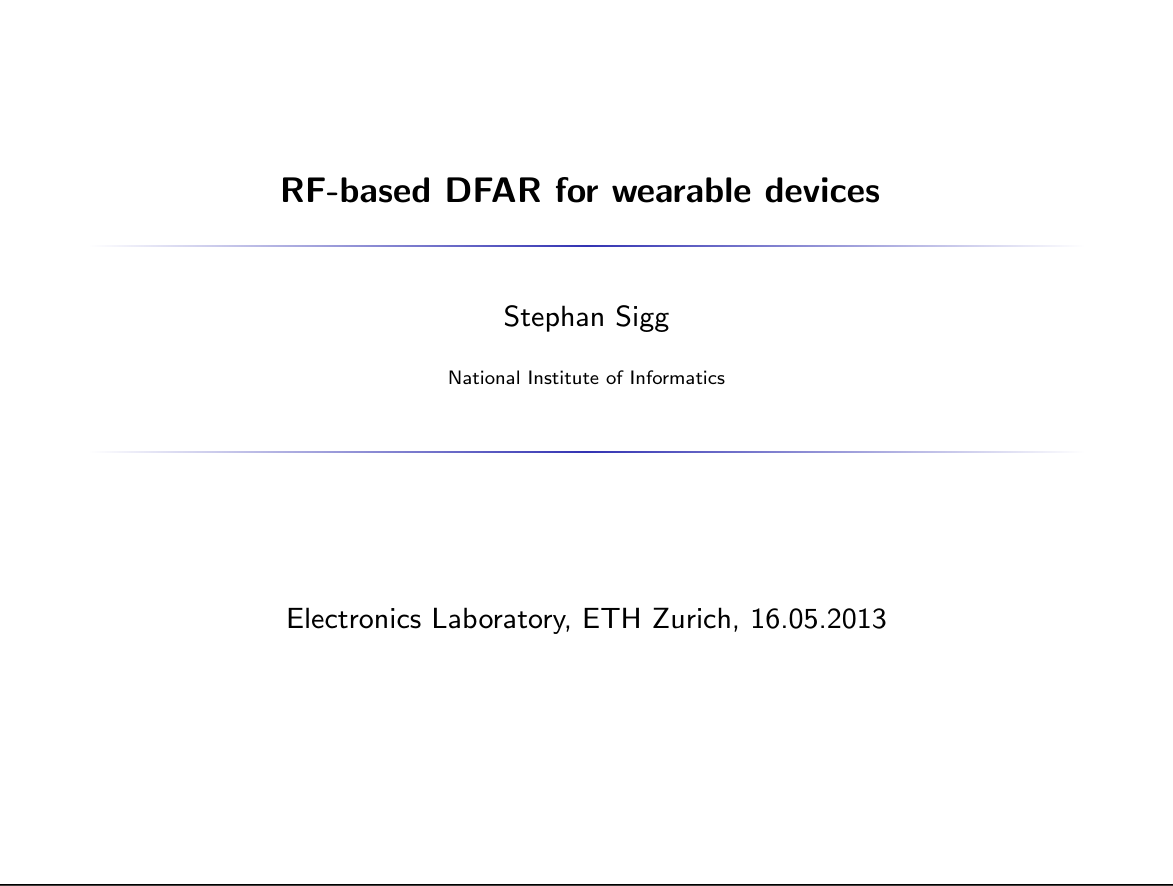
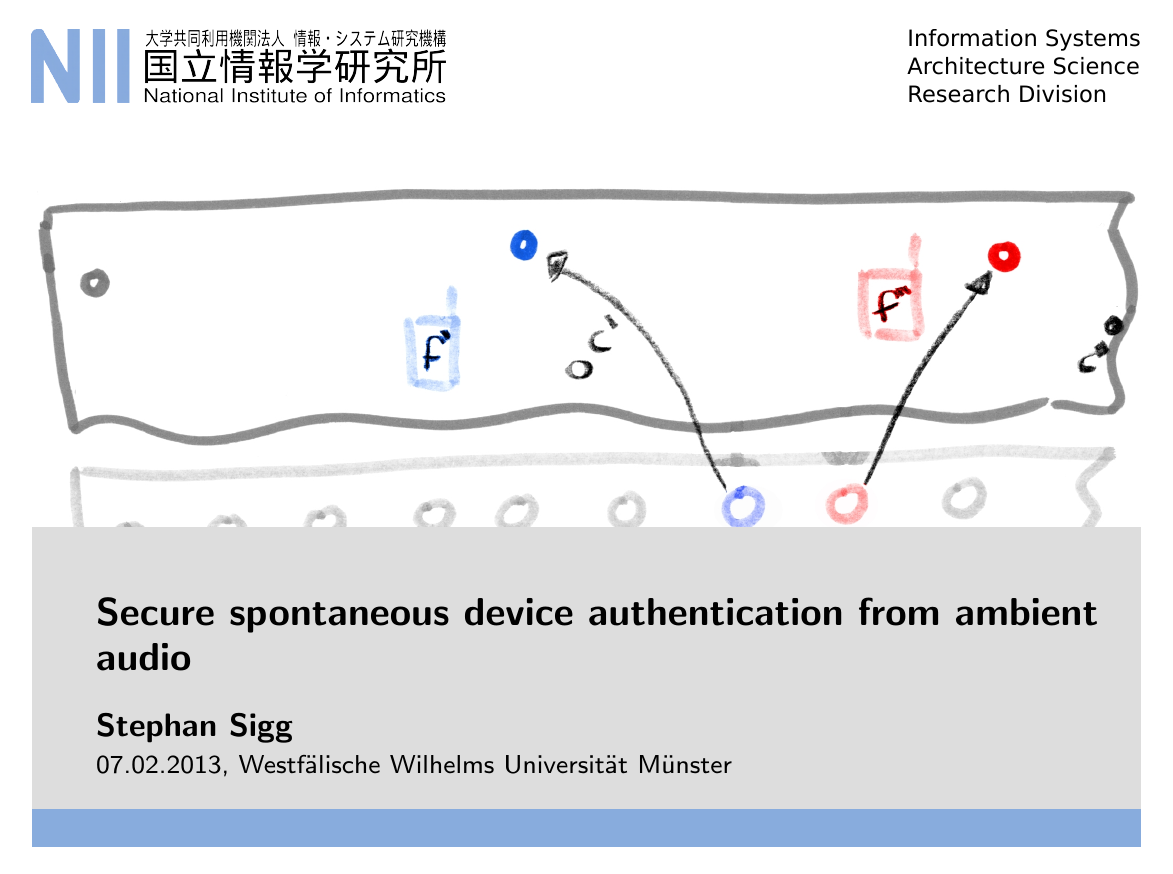
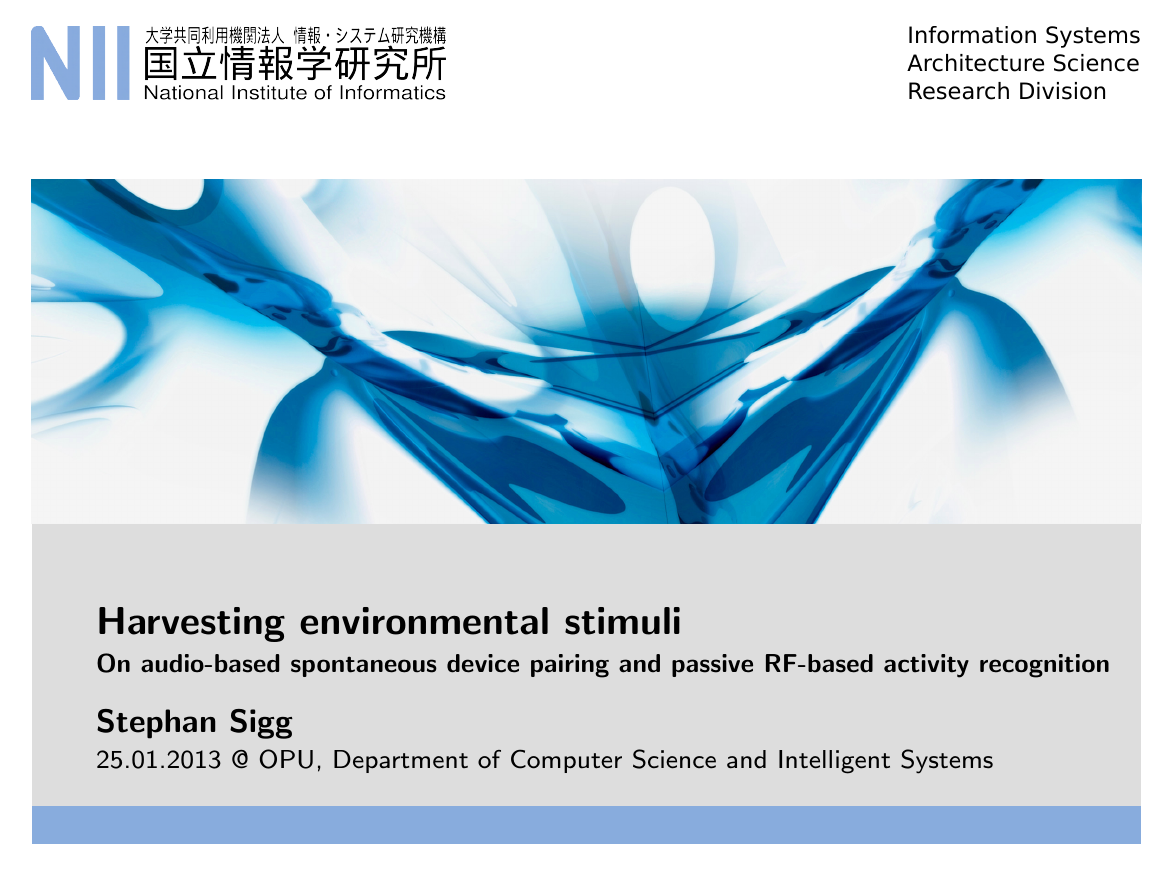
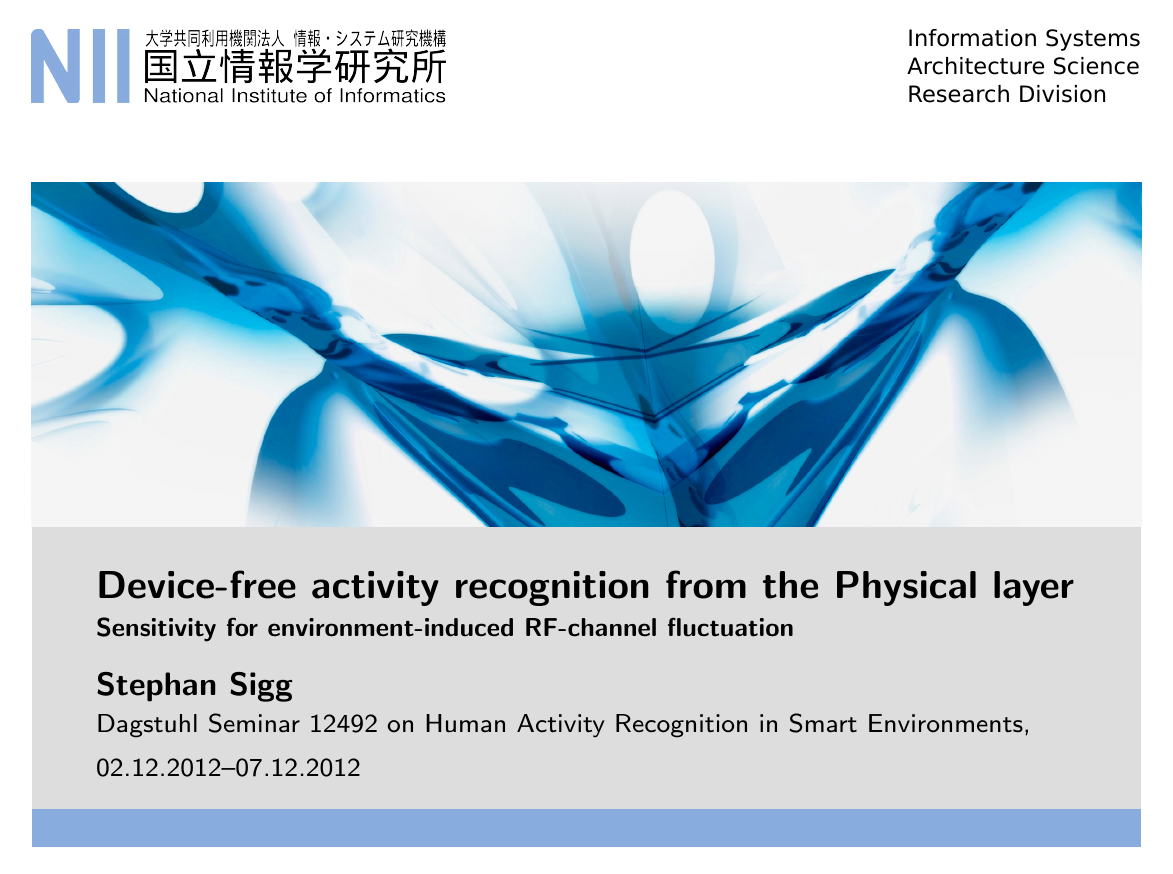
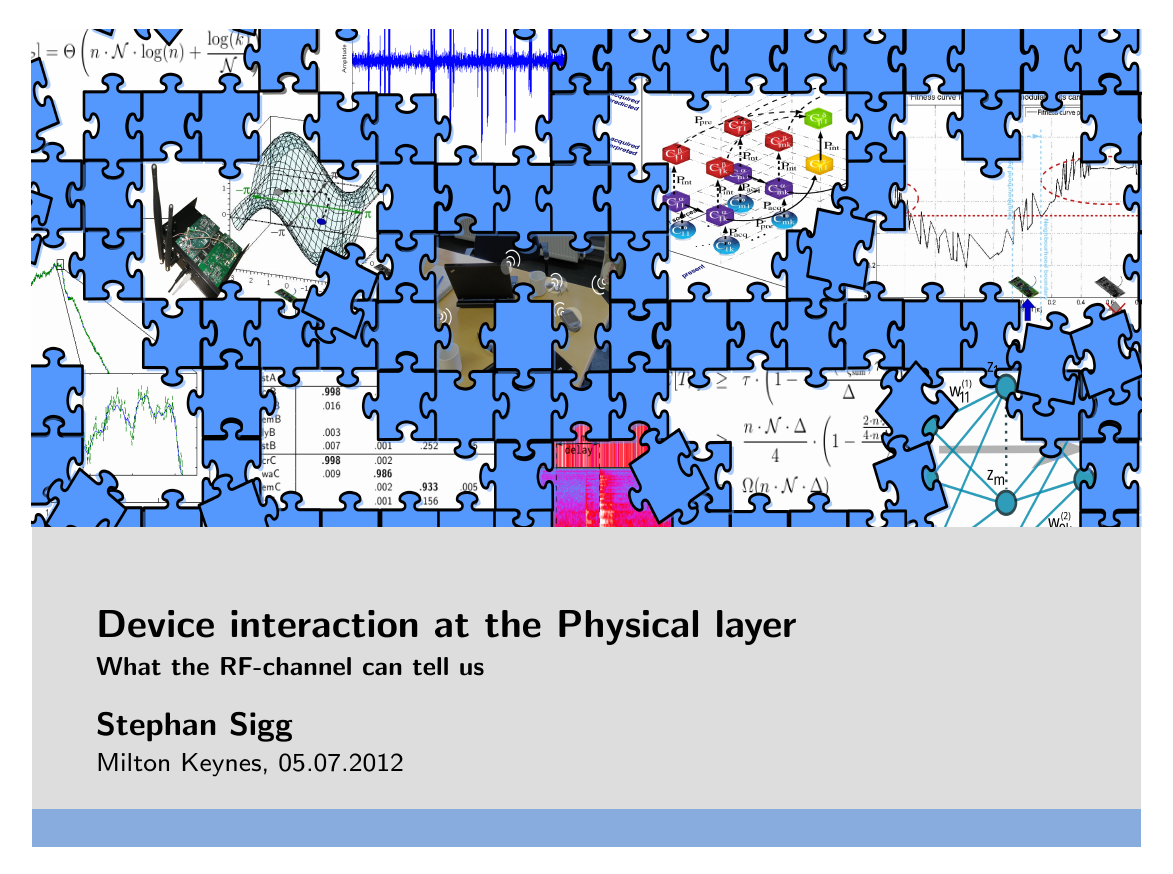
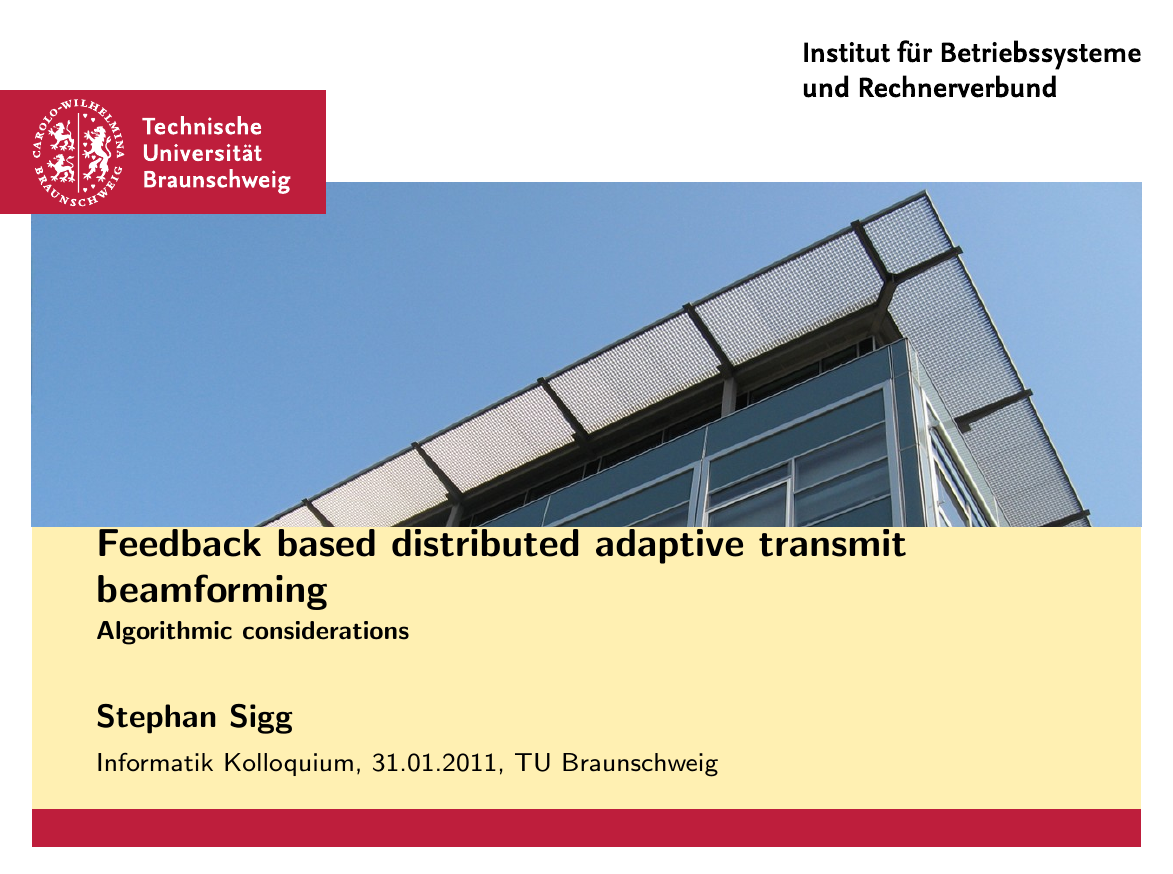
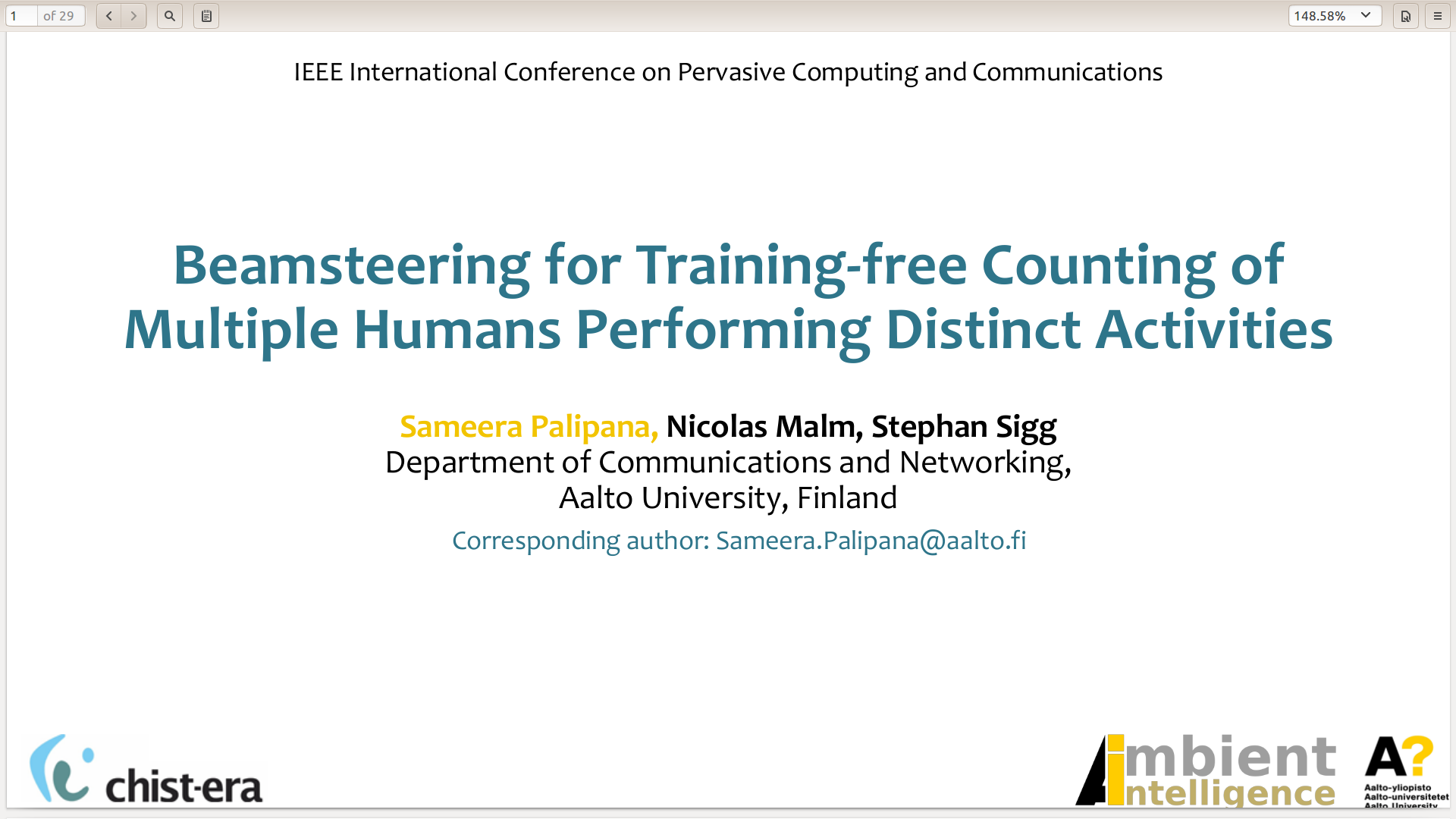 Beamsteering for Training-free Counting of
Multiple Humans Performing Distinct Activities
Beamsteering for Training-free Counting of
Multiple Humans Performing Distinct Activities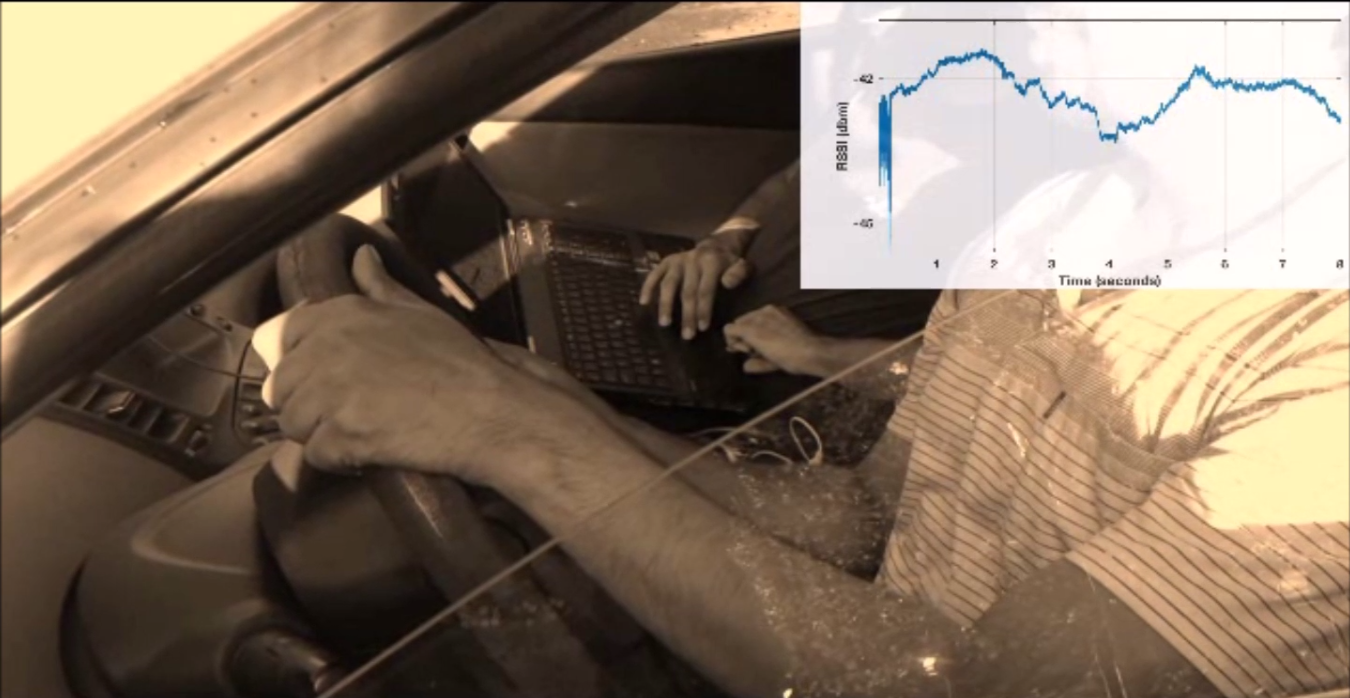 RFexpress! - RF Emotion Recognition in the Wild
RFexpress! - RF Emotion Recognition in the Wild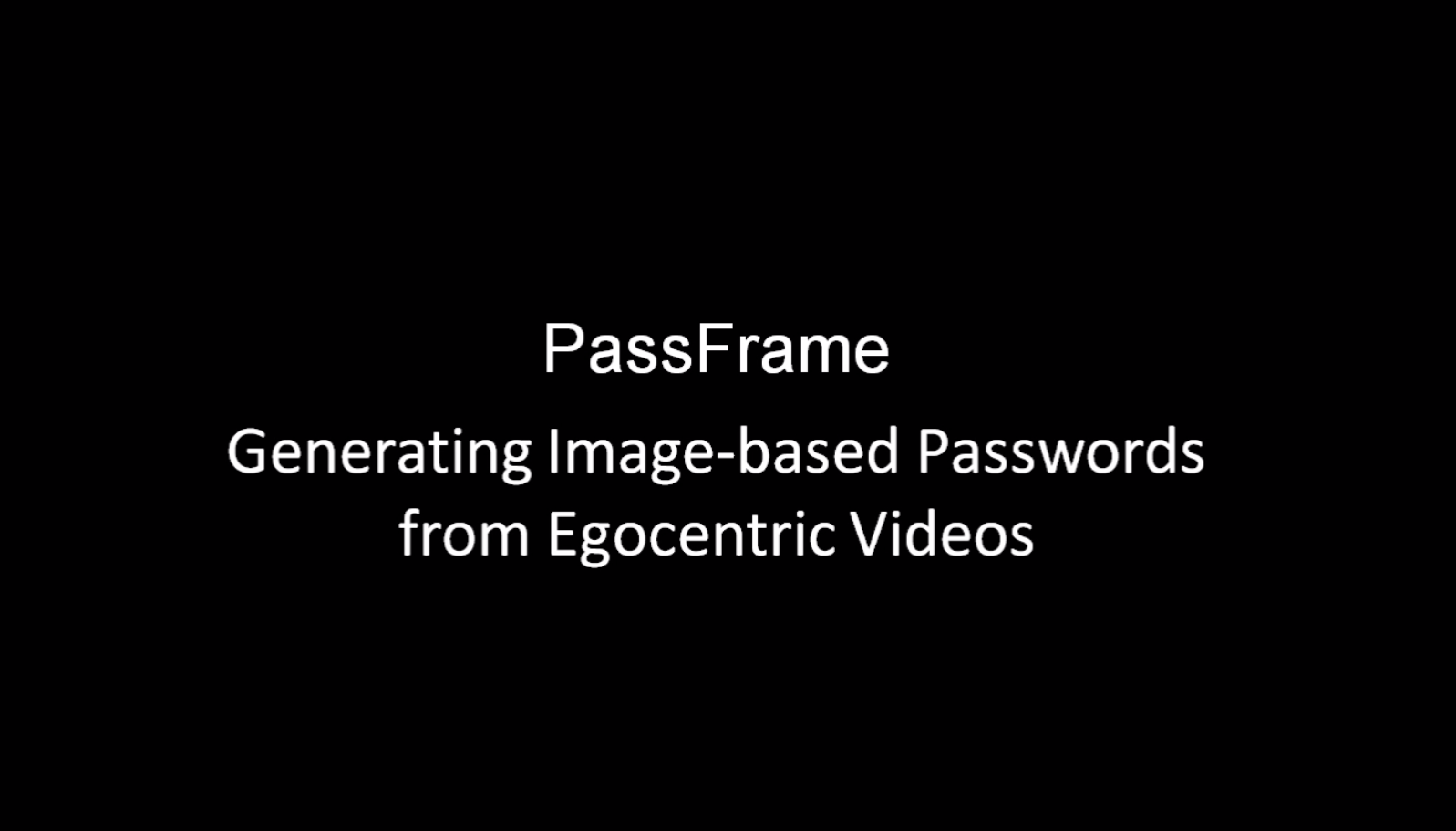 PassFrame: Generating Image-based Passwords from Egocentric Videos
PassFrame: Generating Image-based Passwords from Egocentric Videos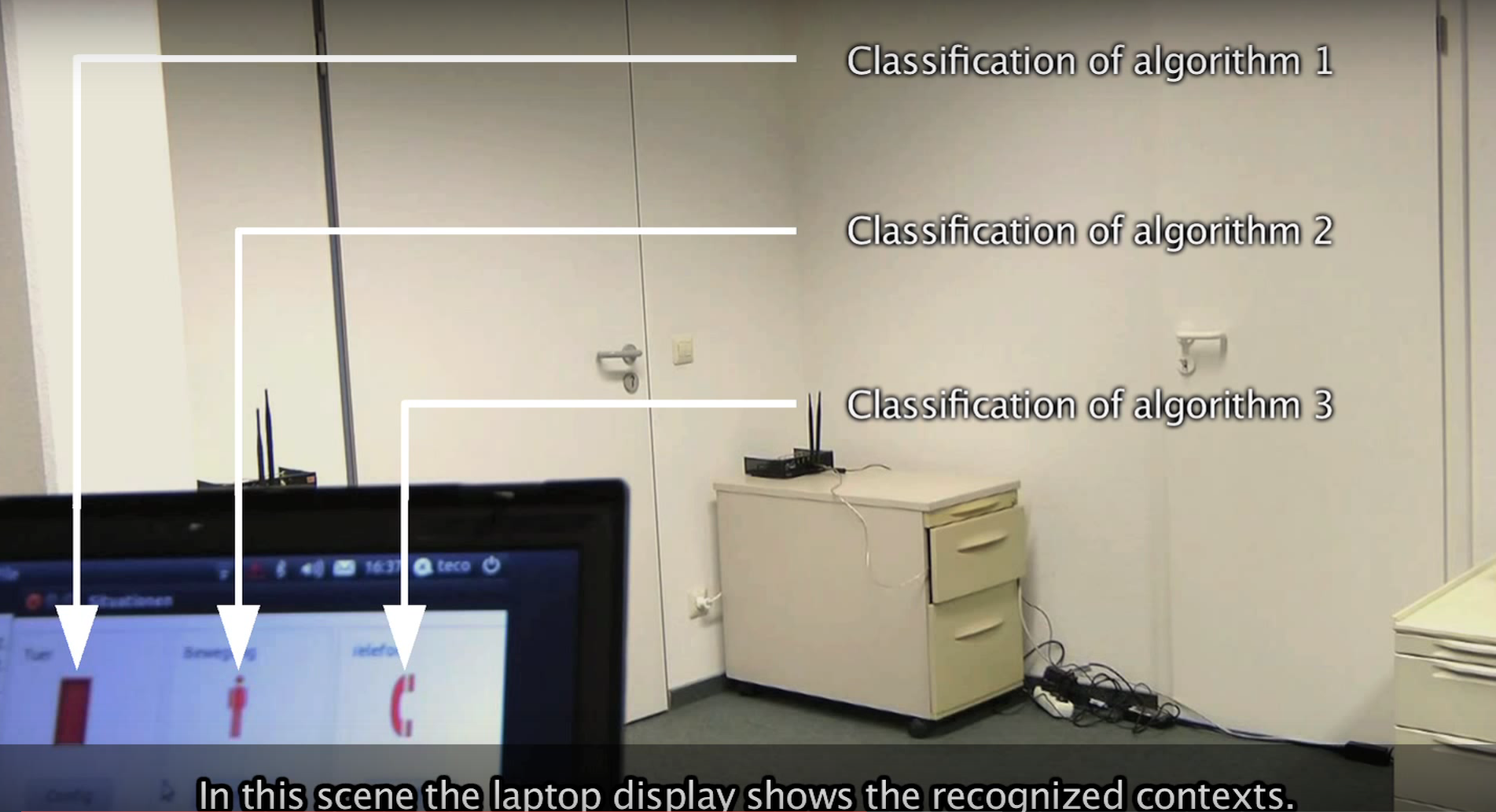 SenseWaves: Radiowaves for context recognition, Pervasive 2011
SenseWaves: Radiowaves for context recognition, Pervasive 2011